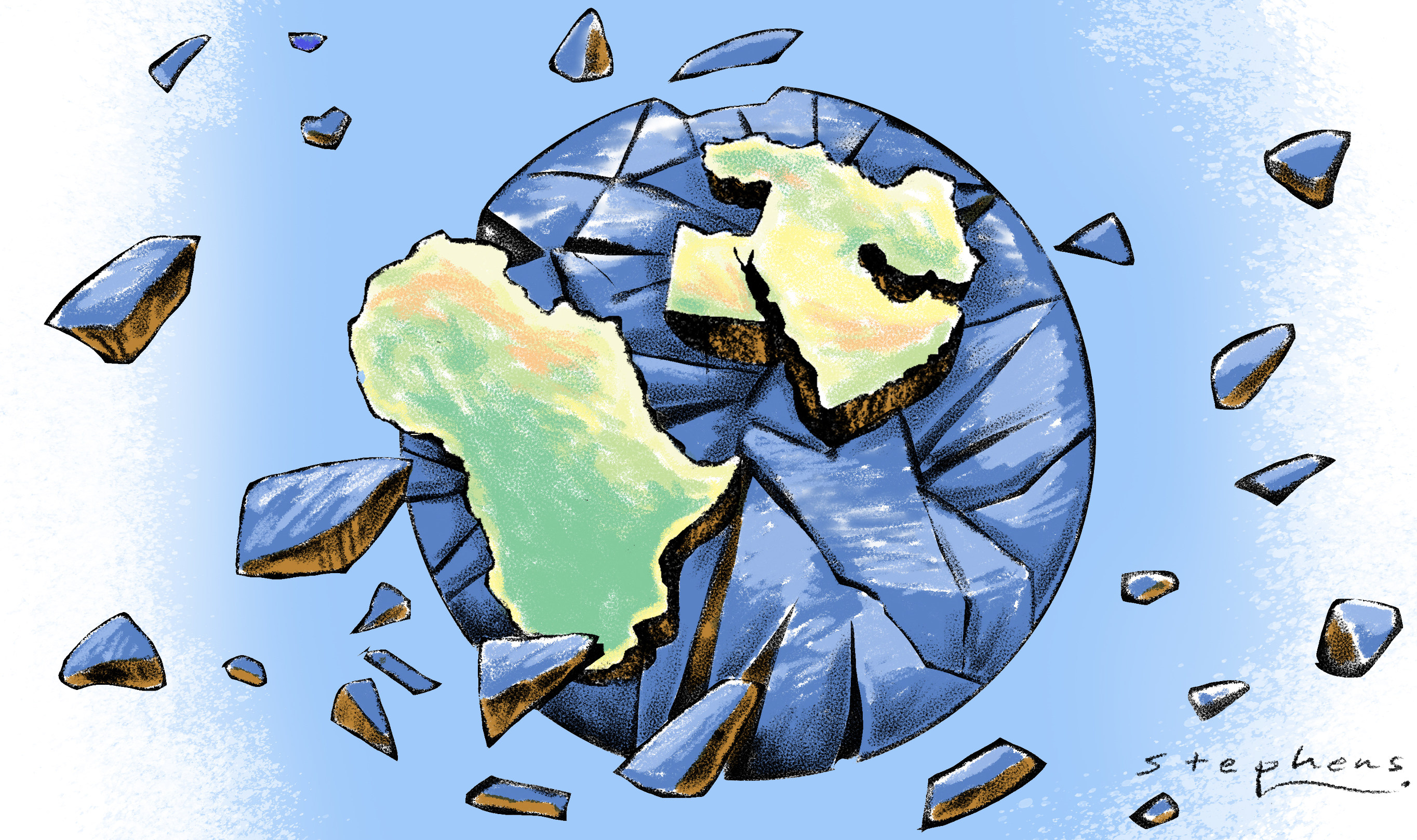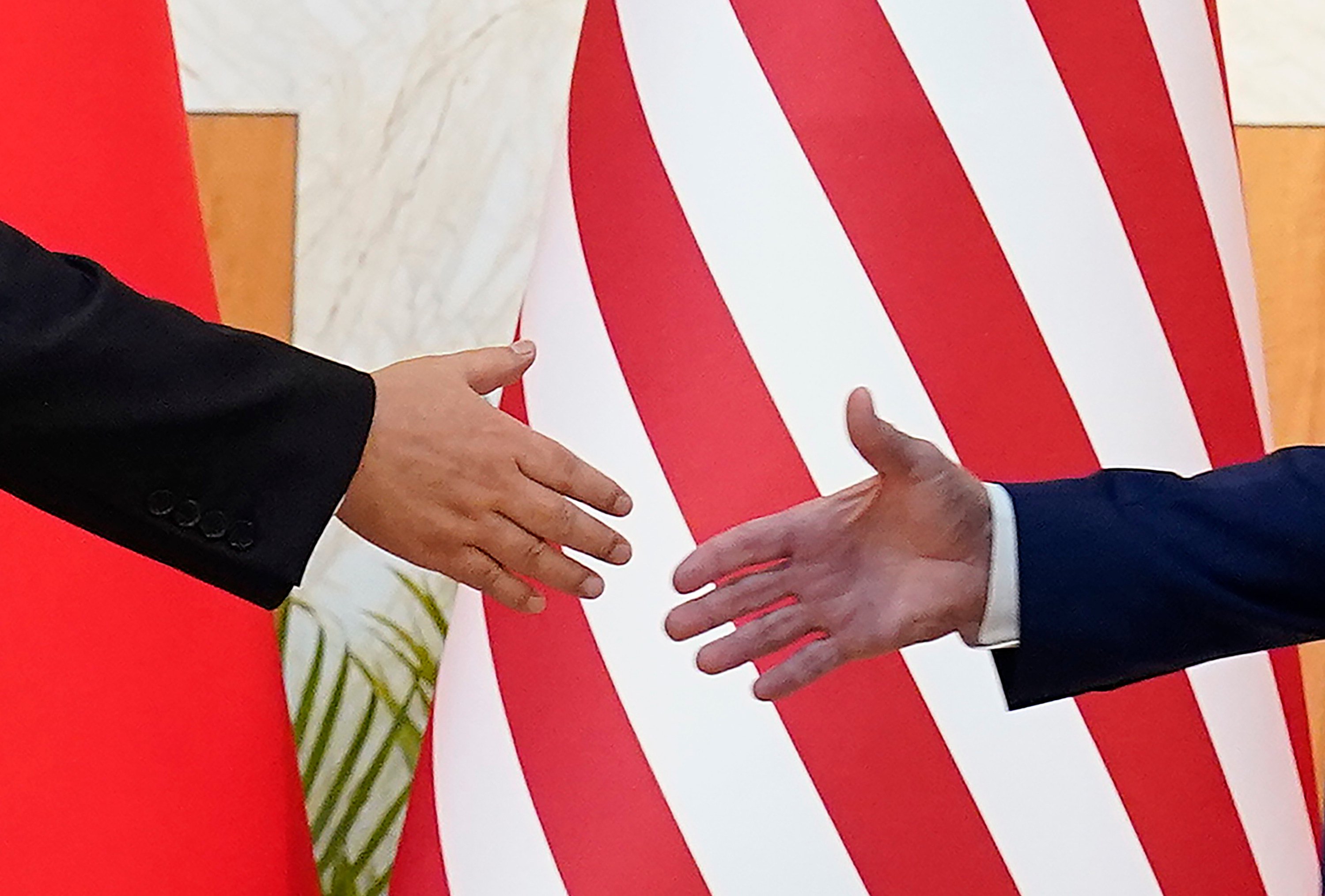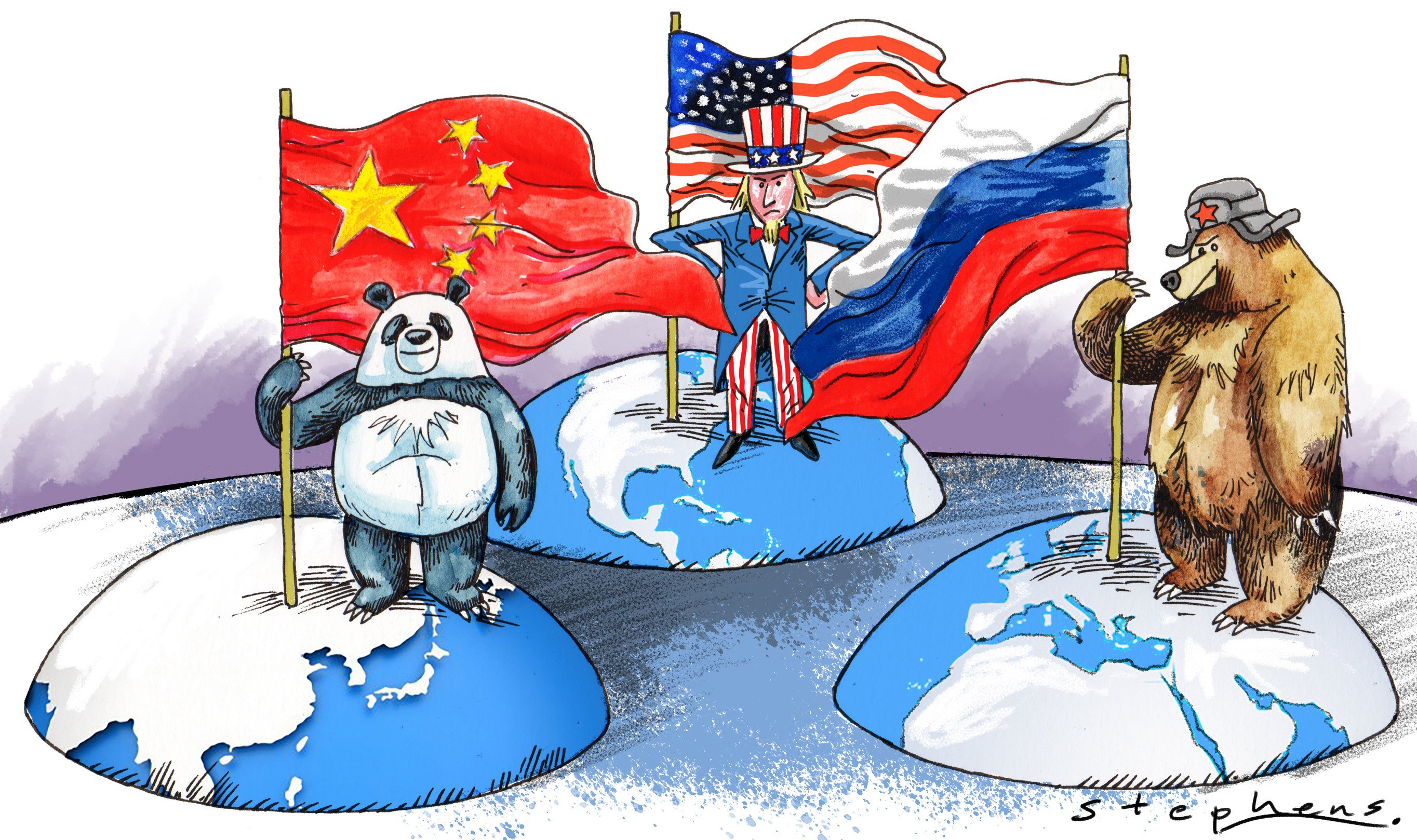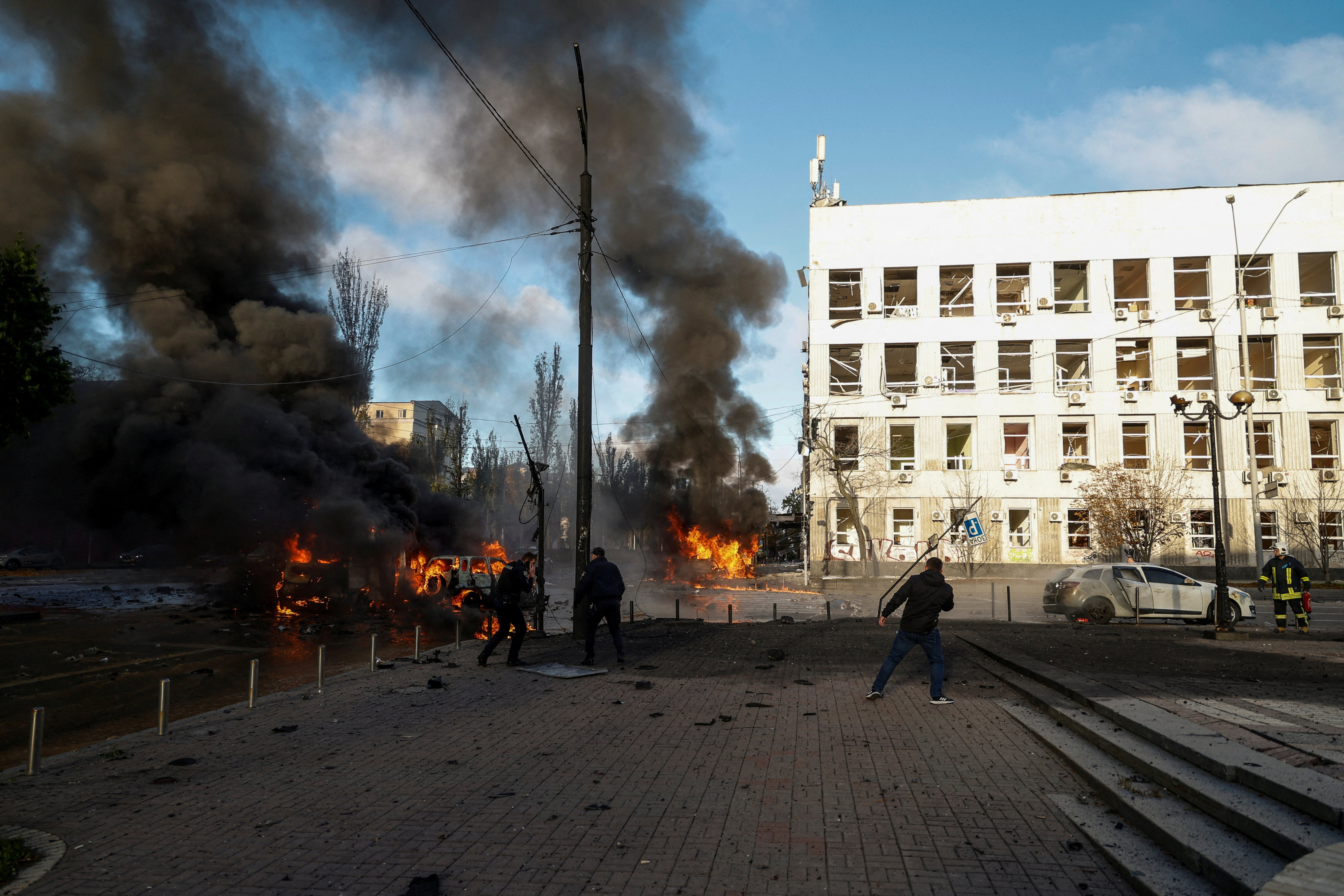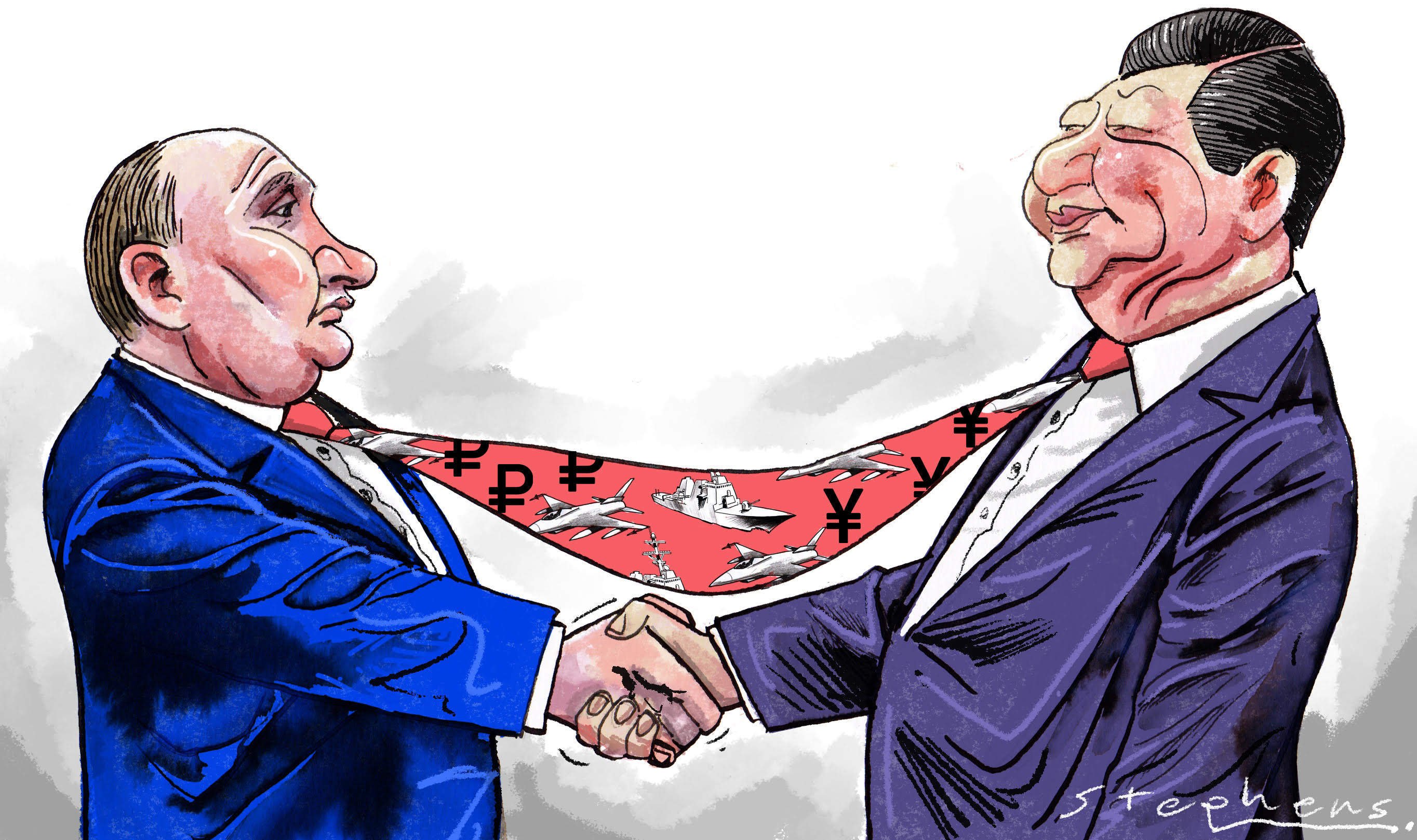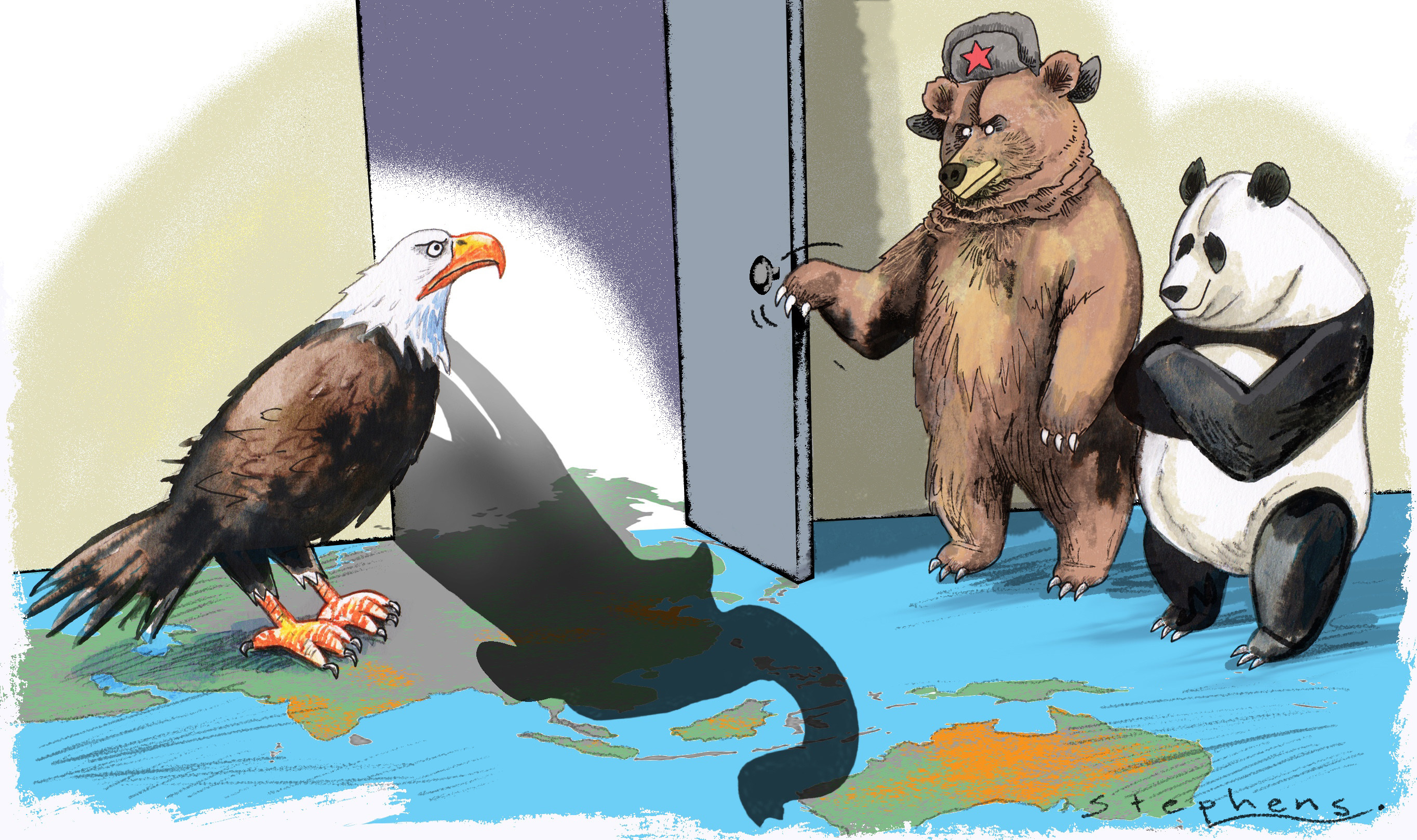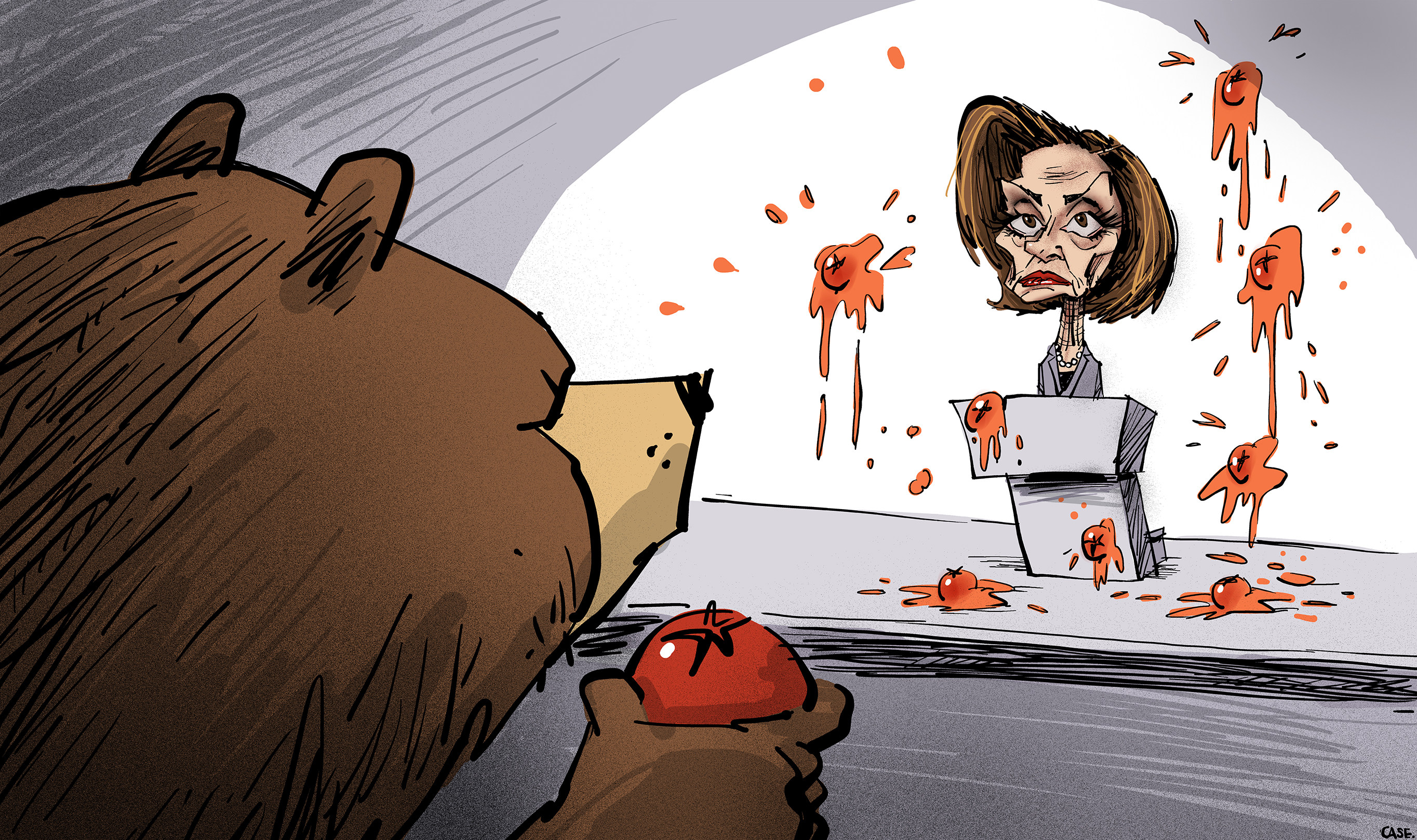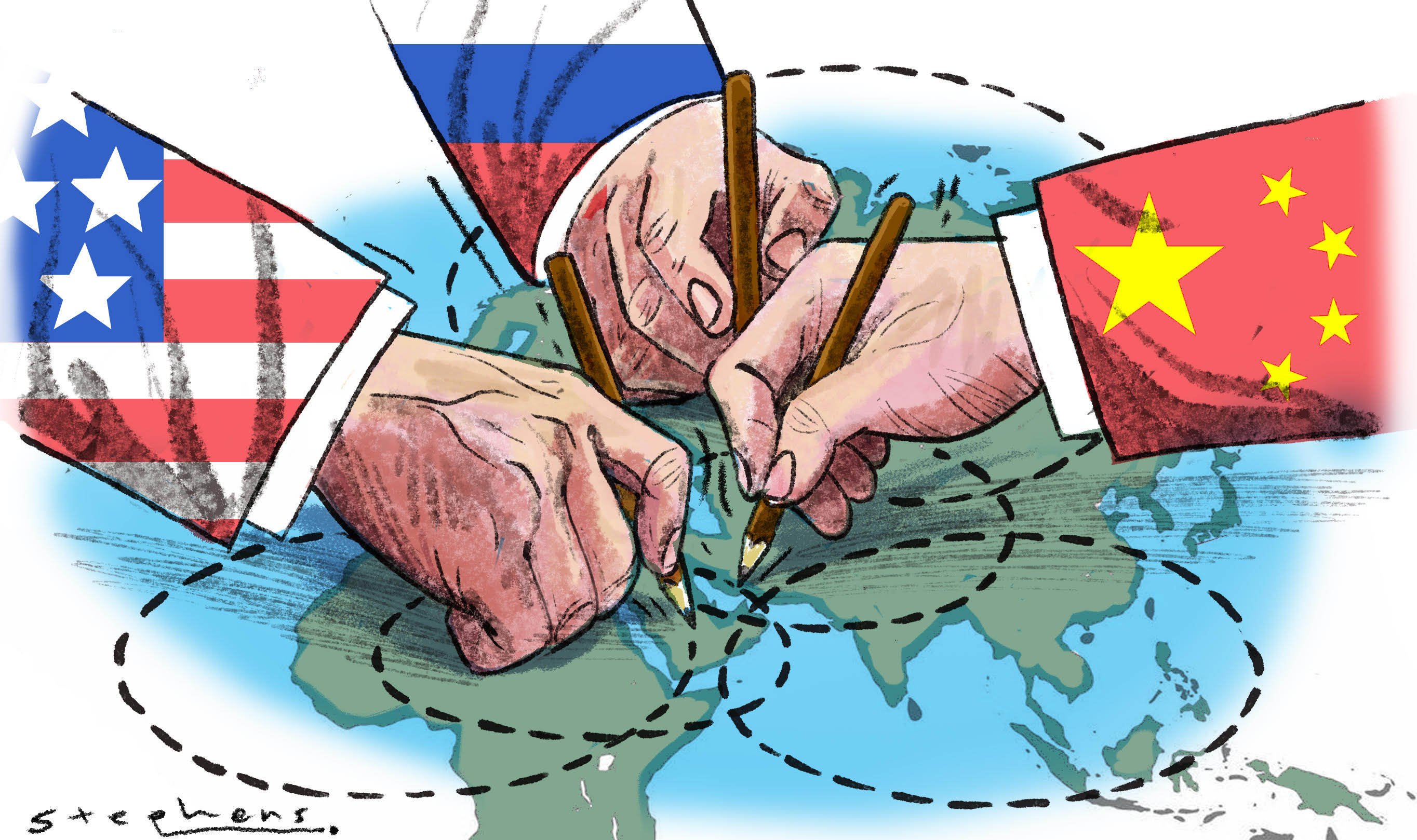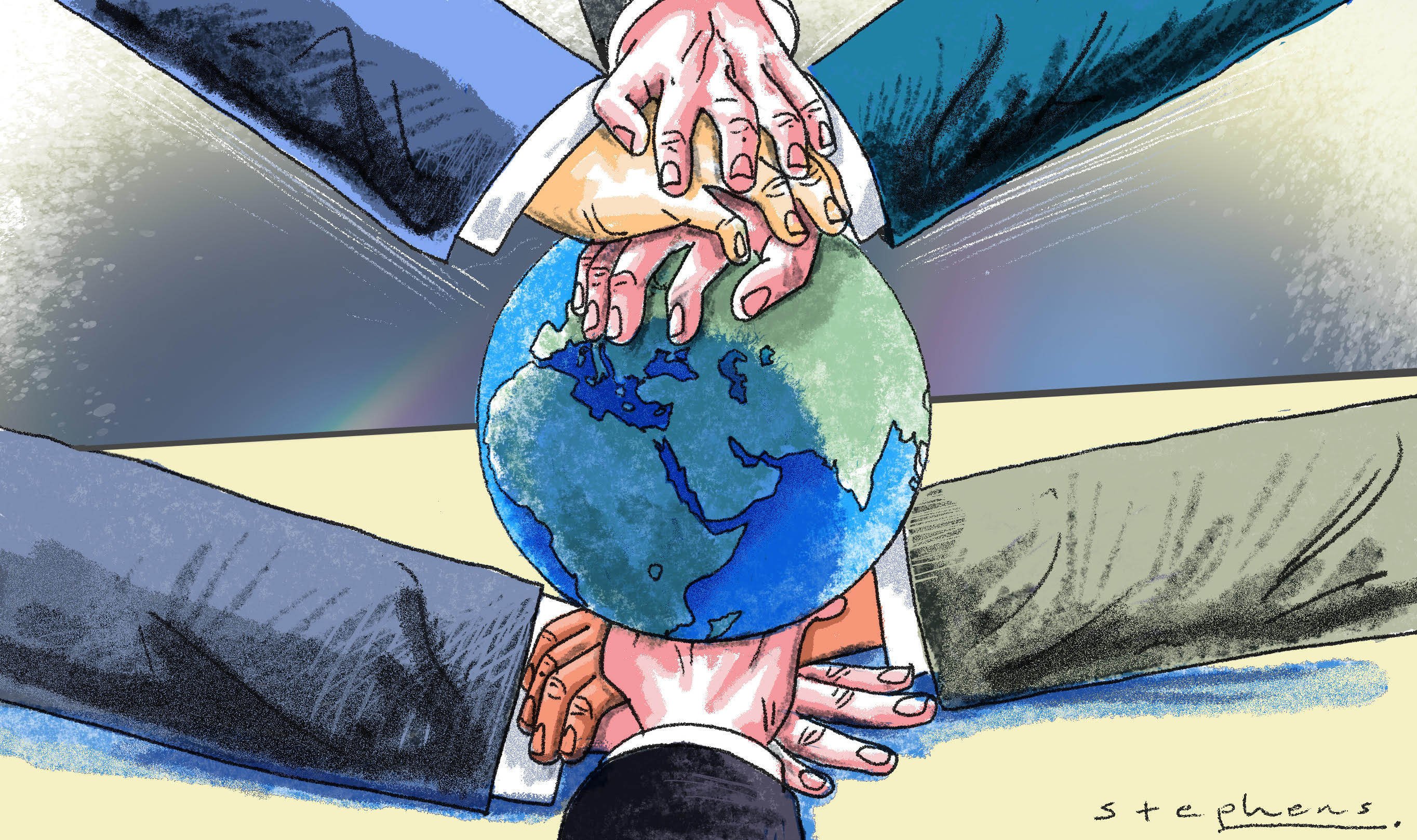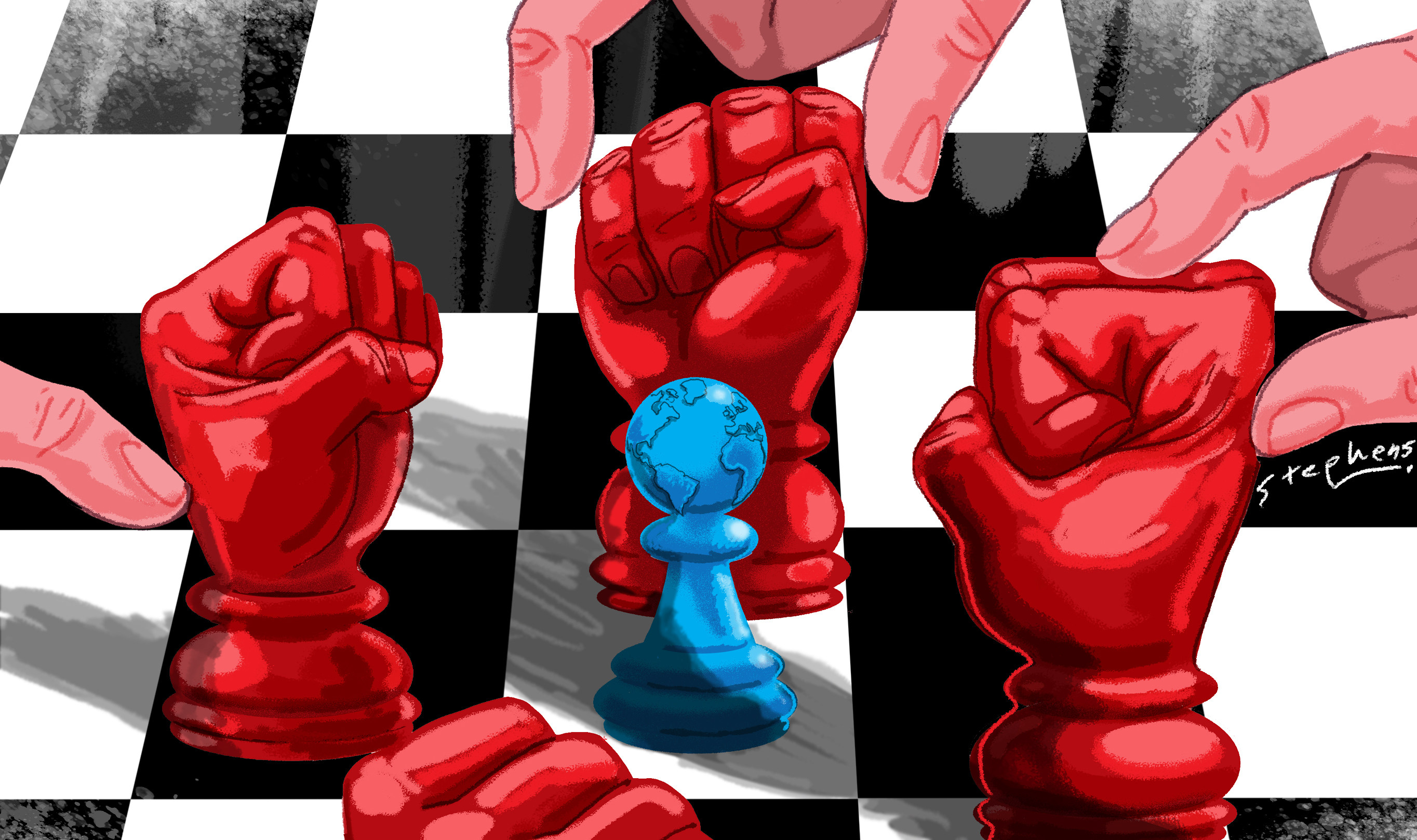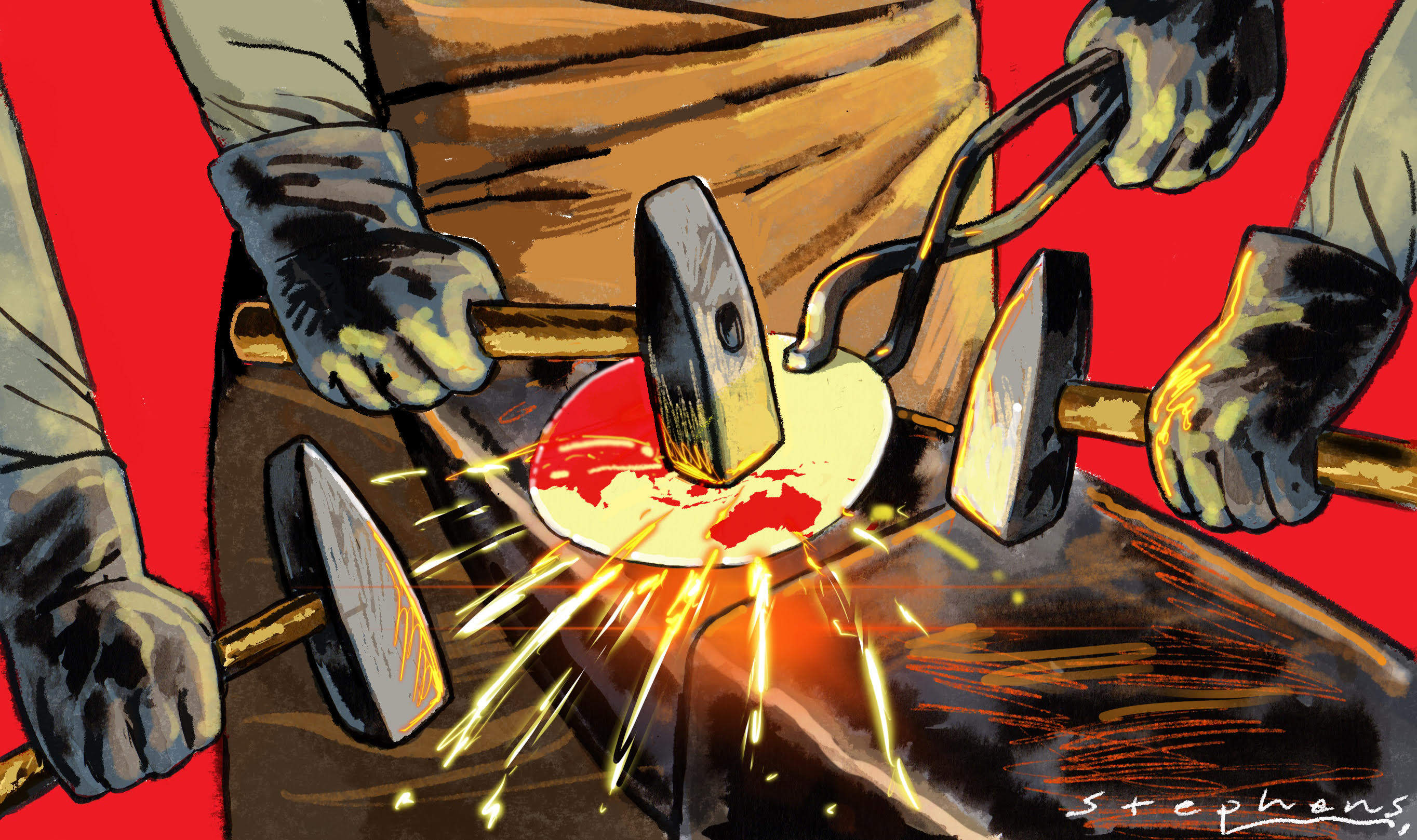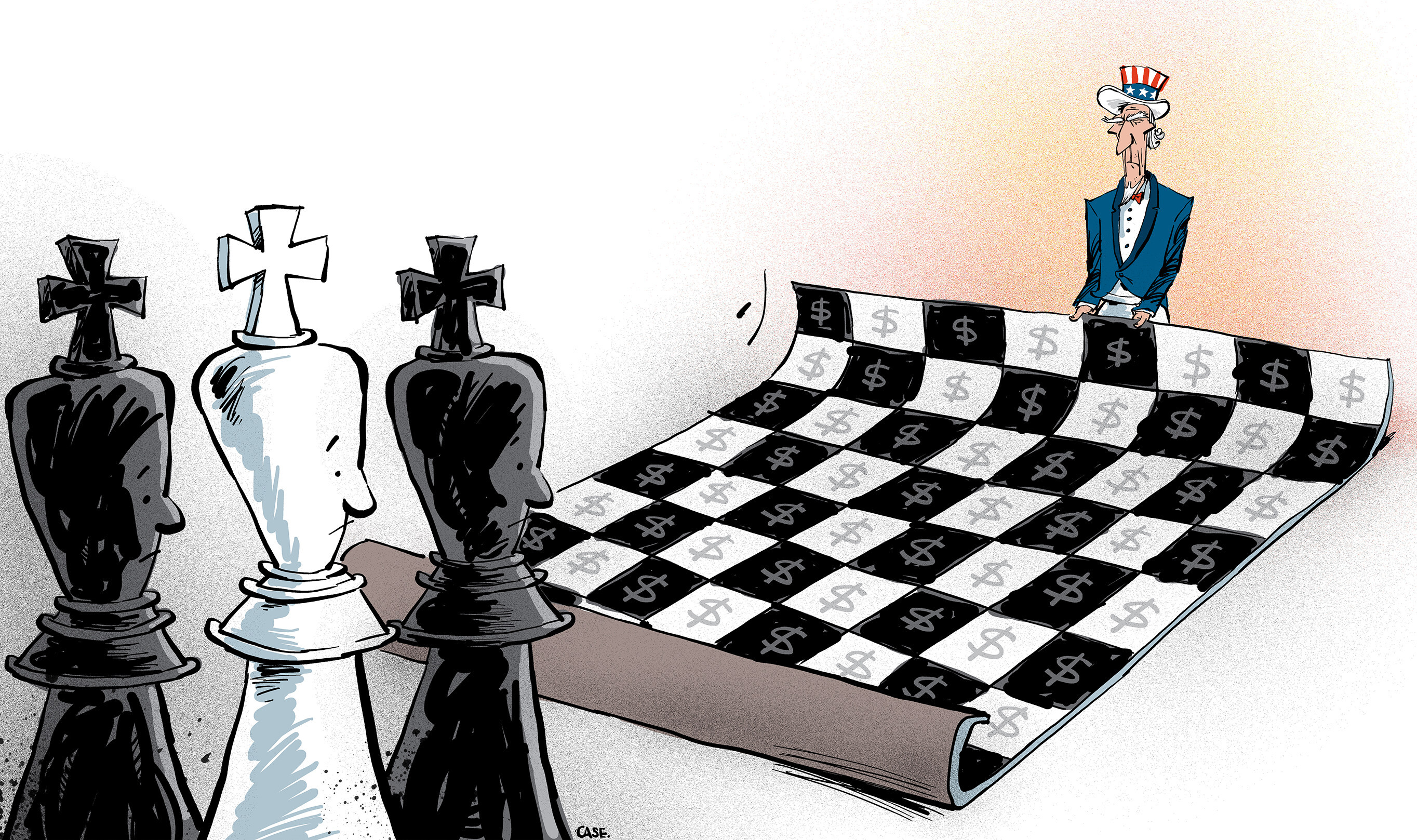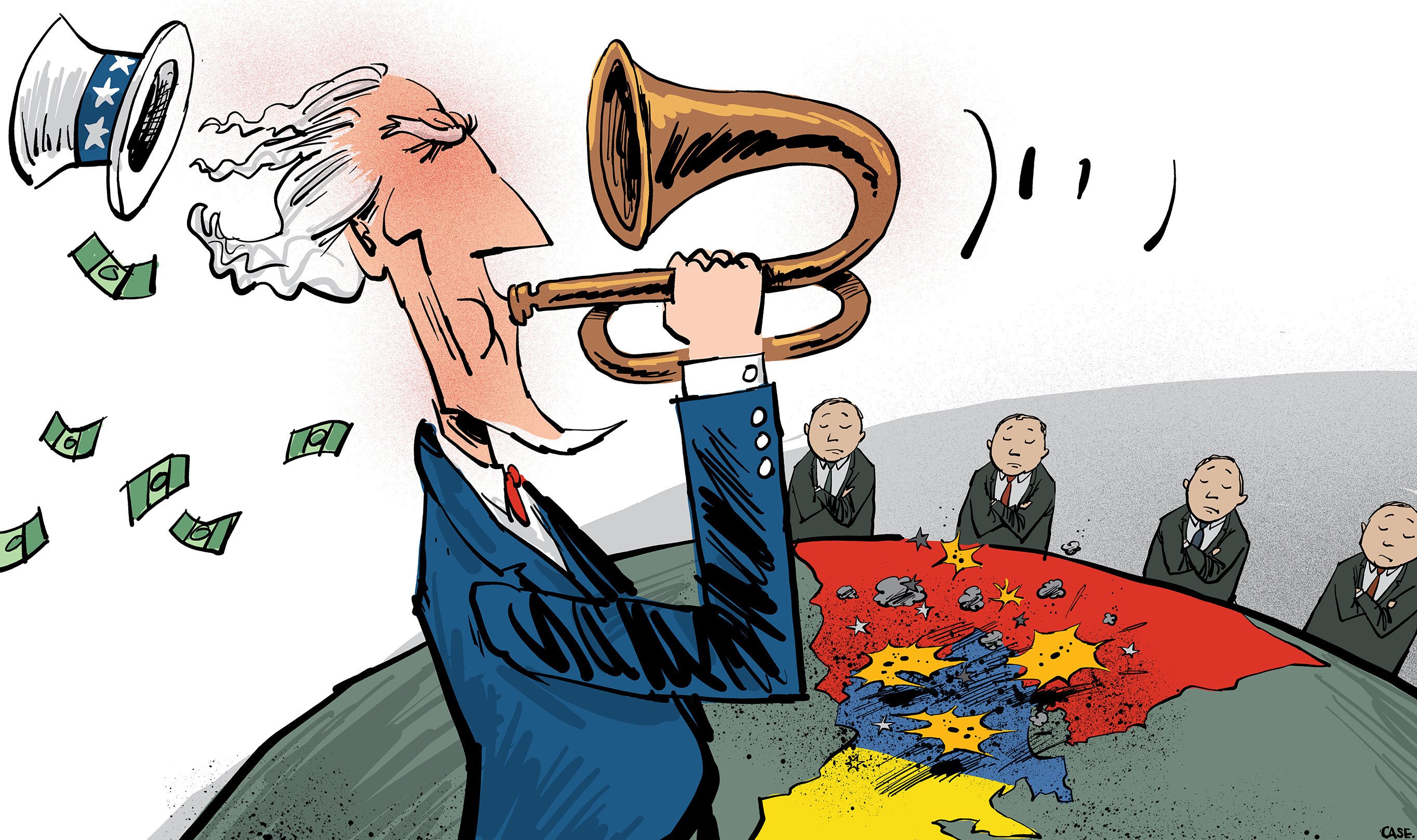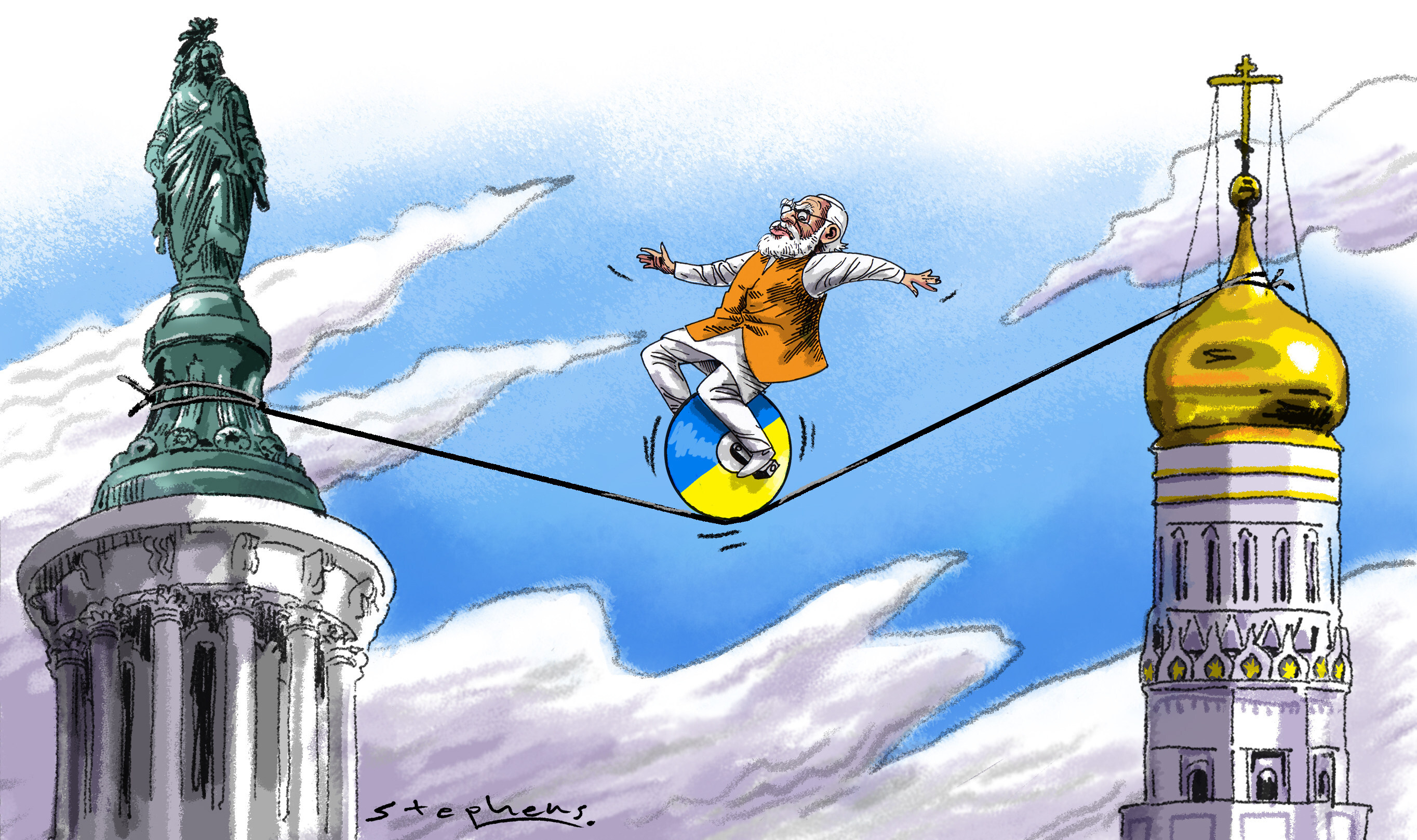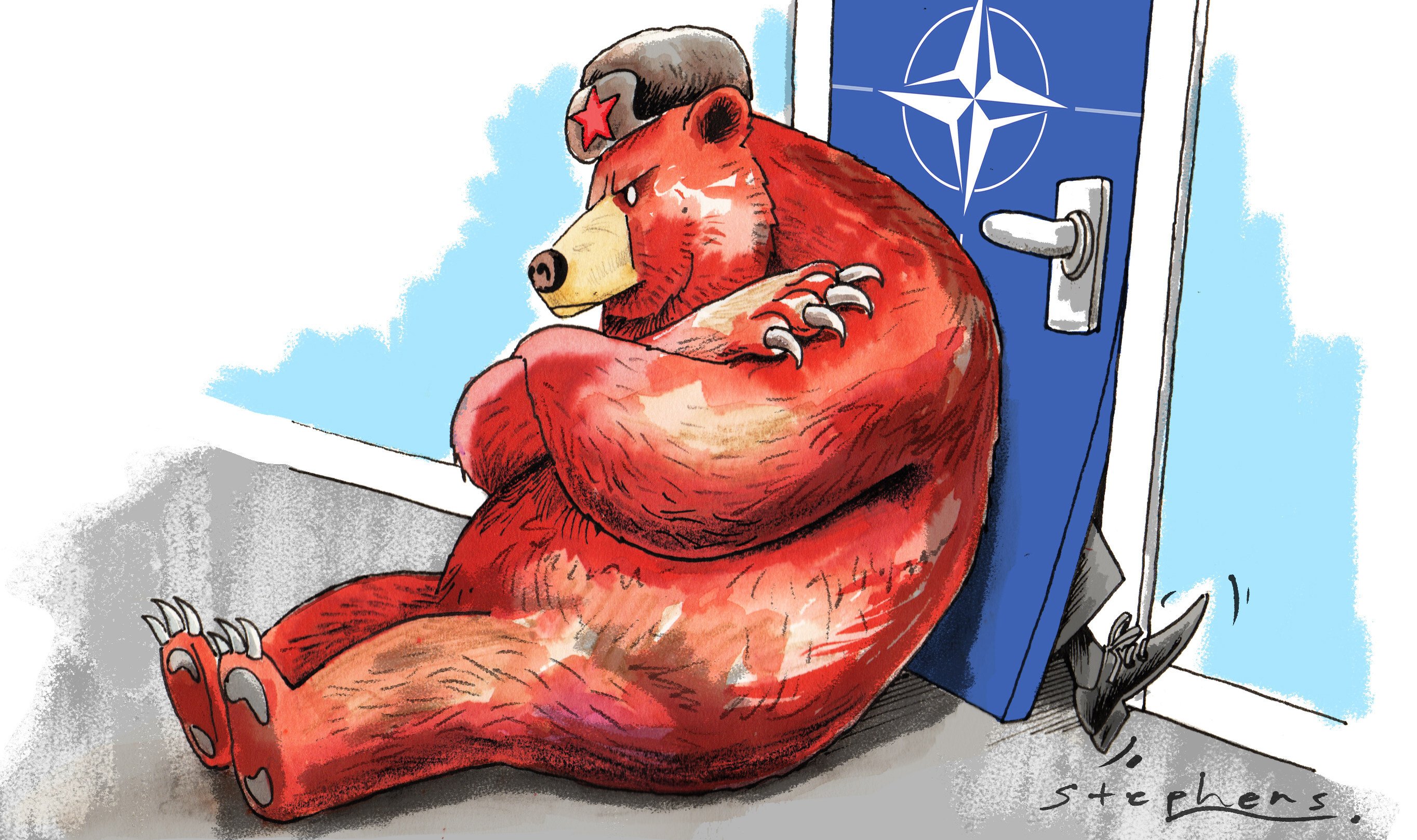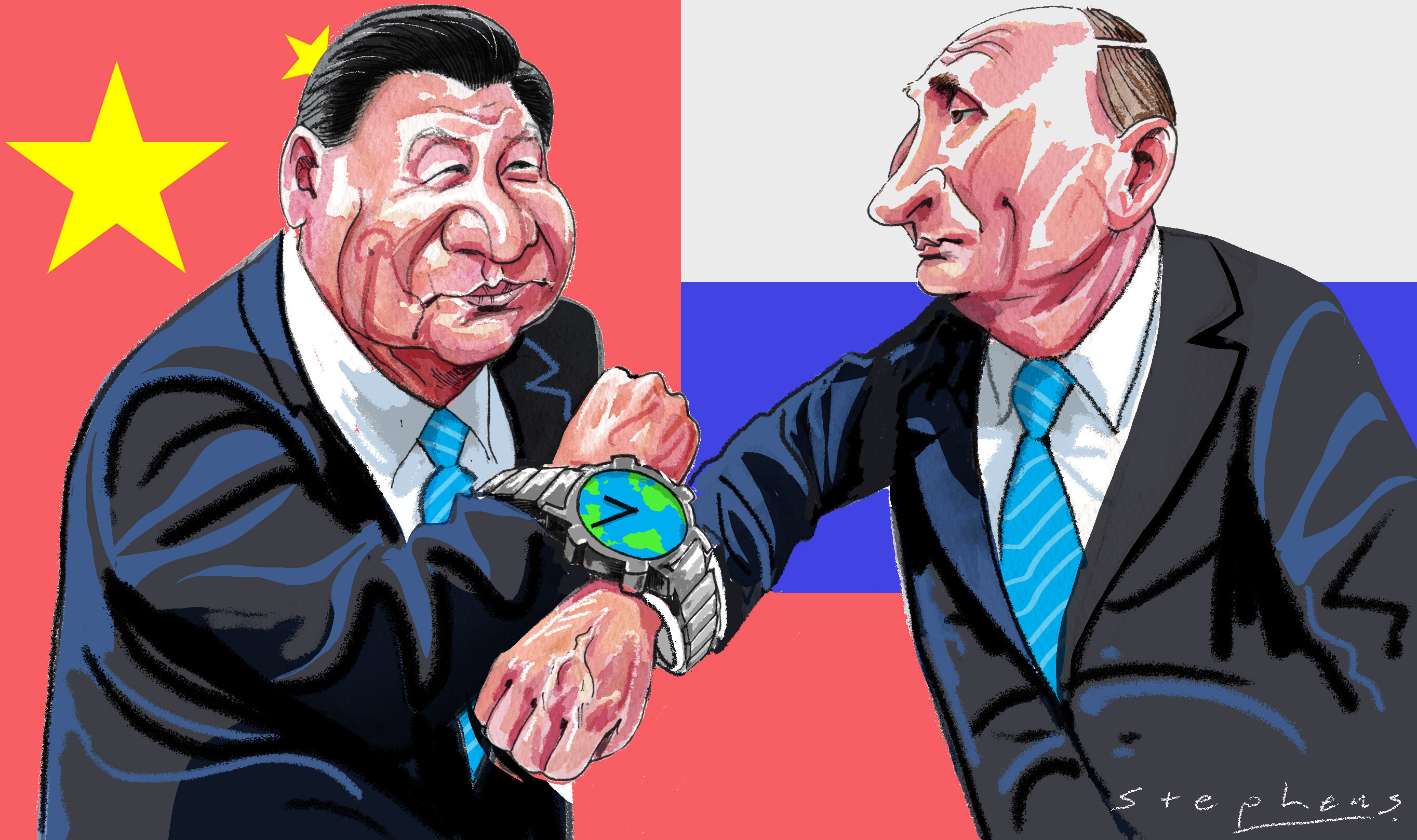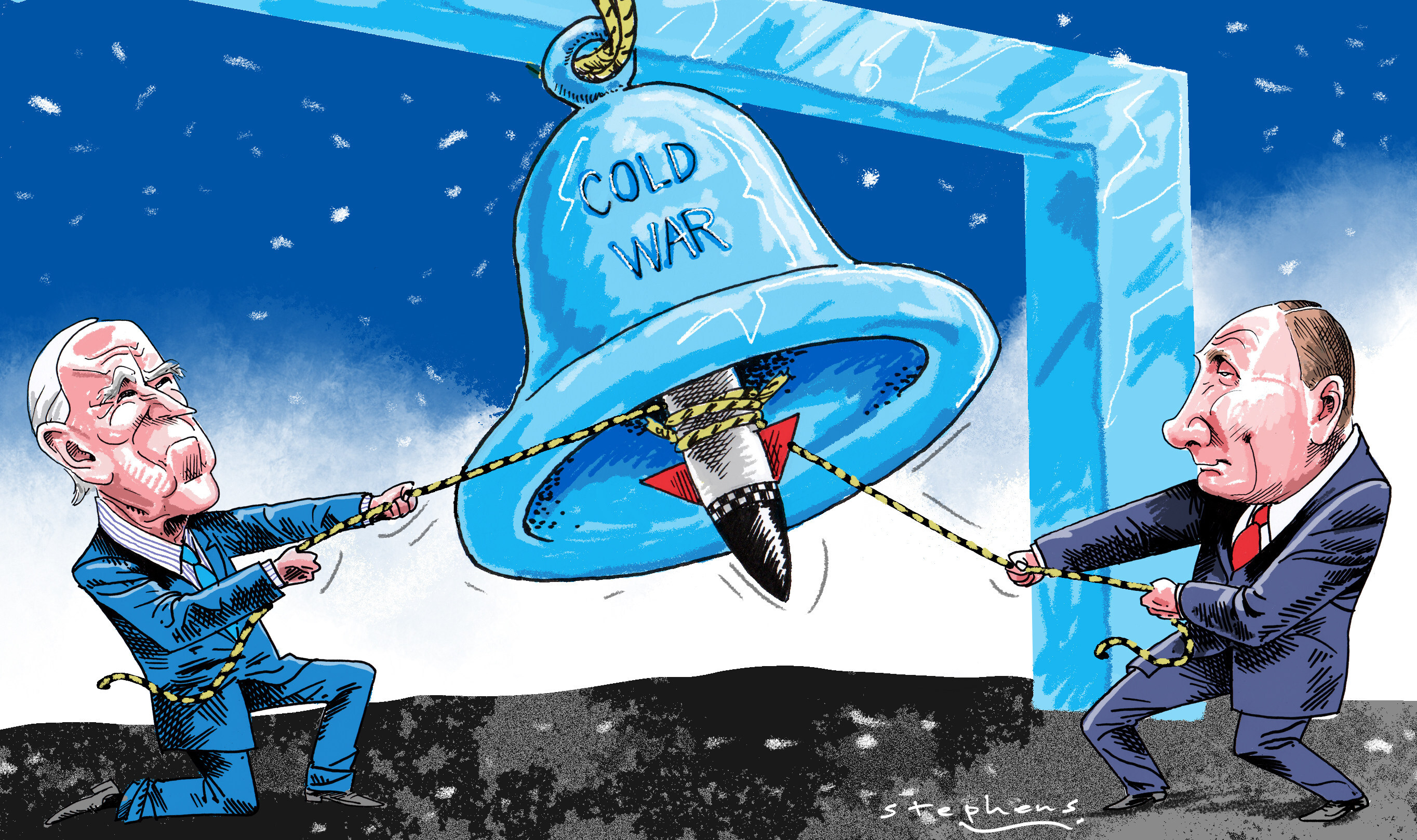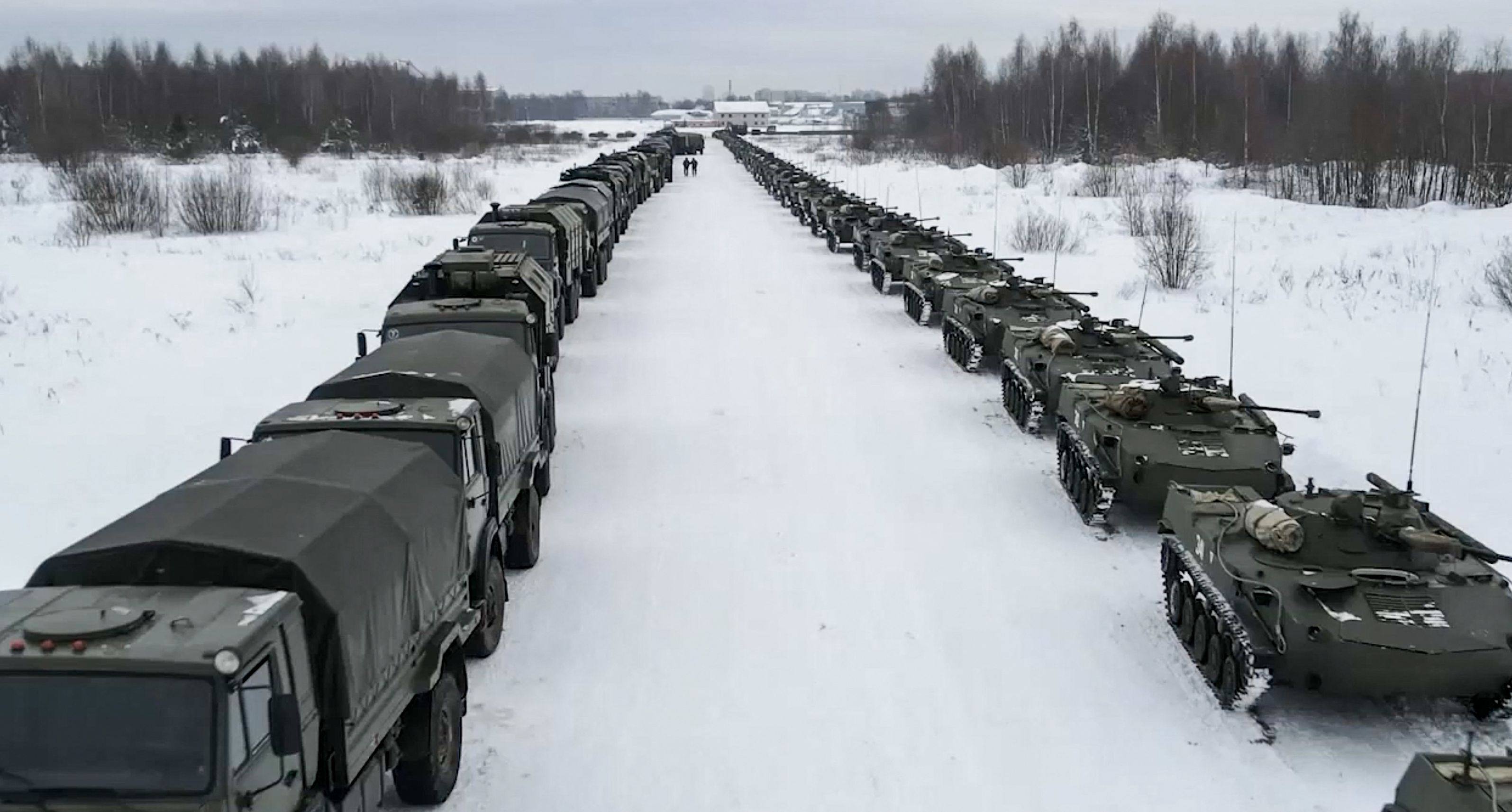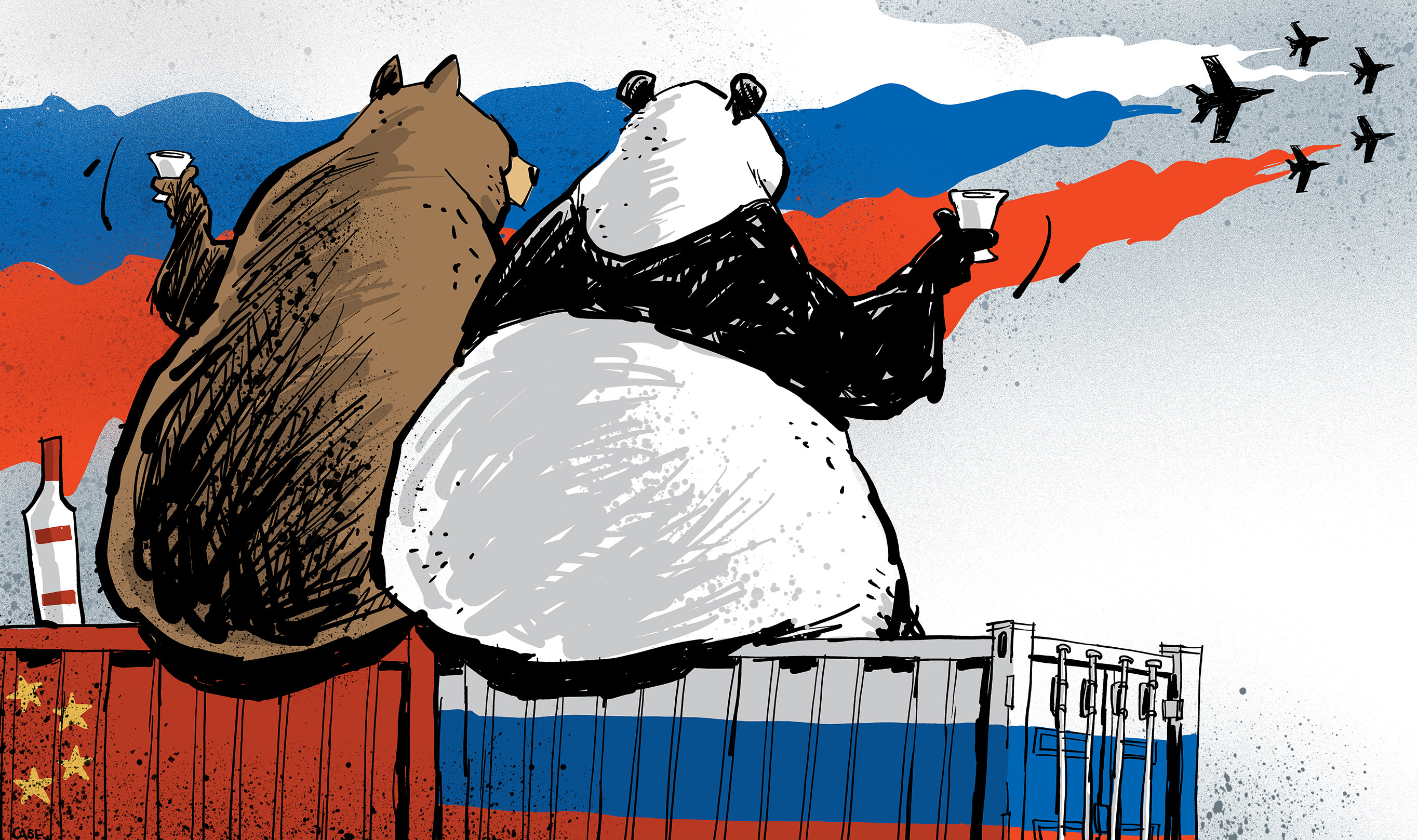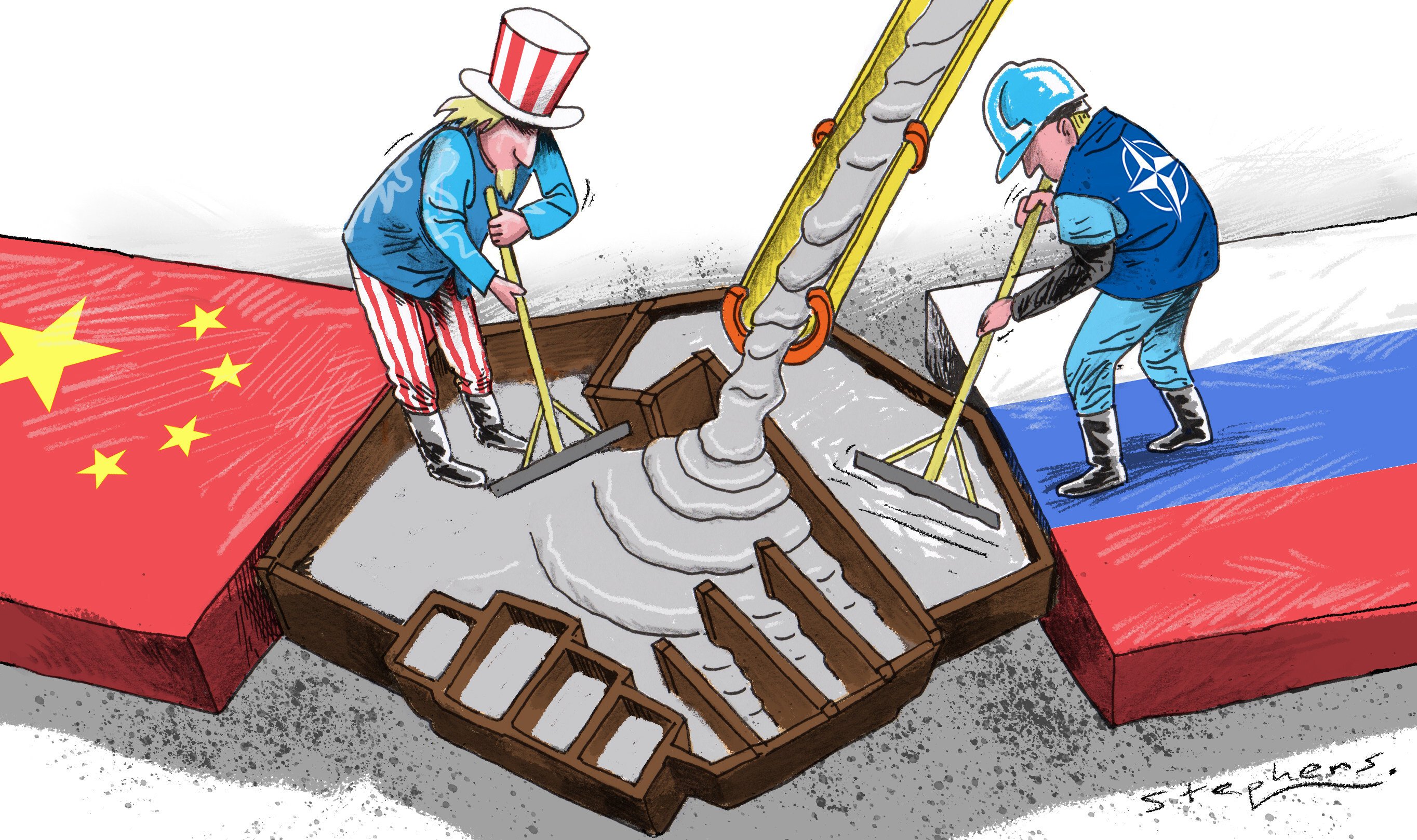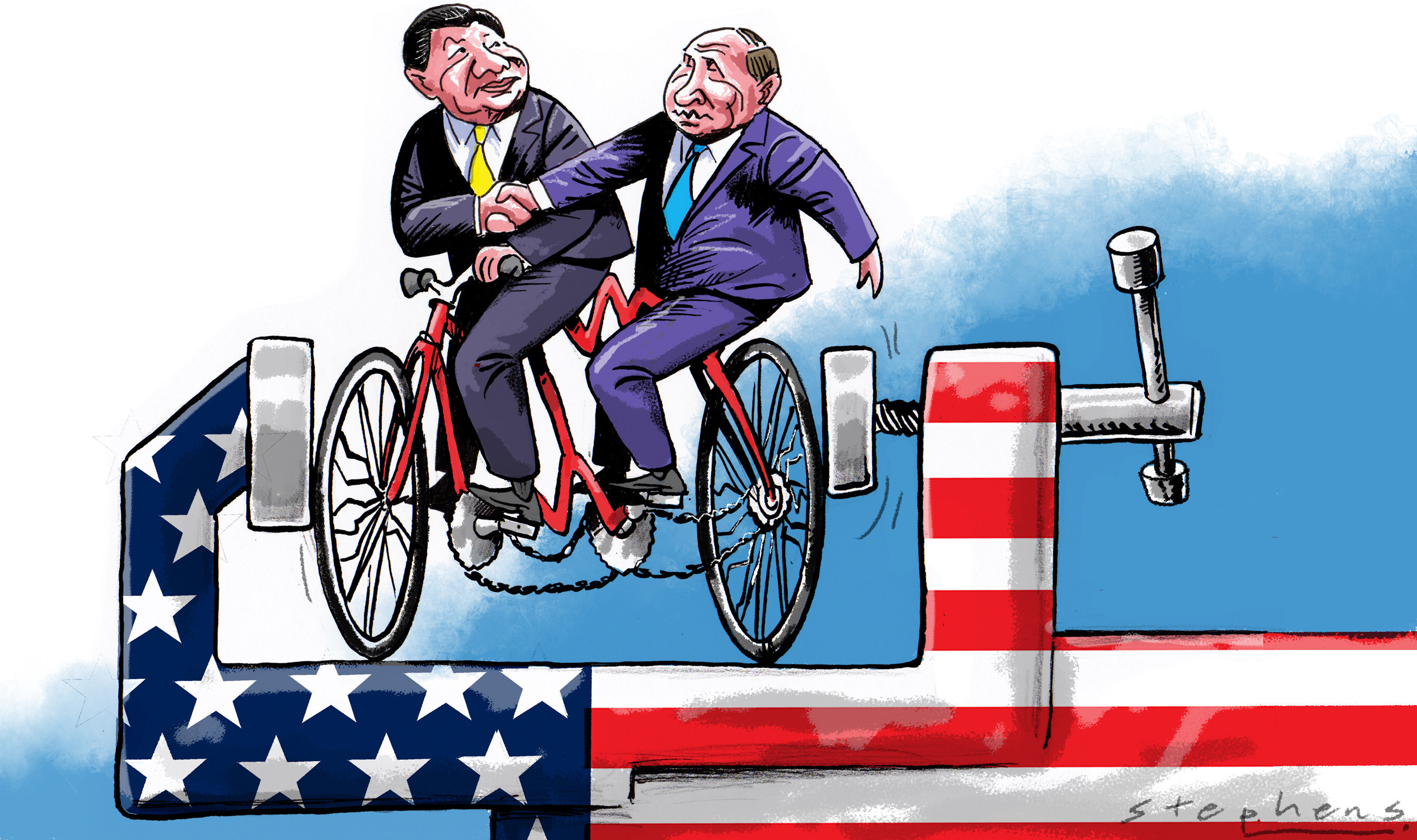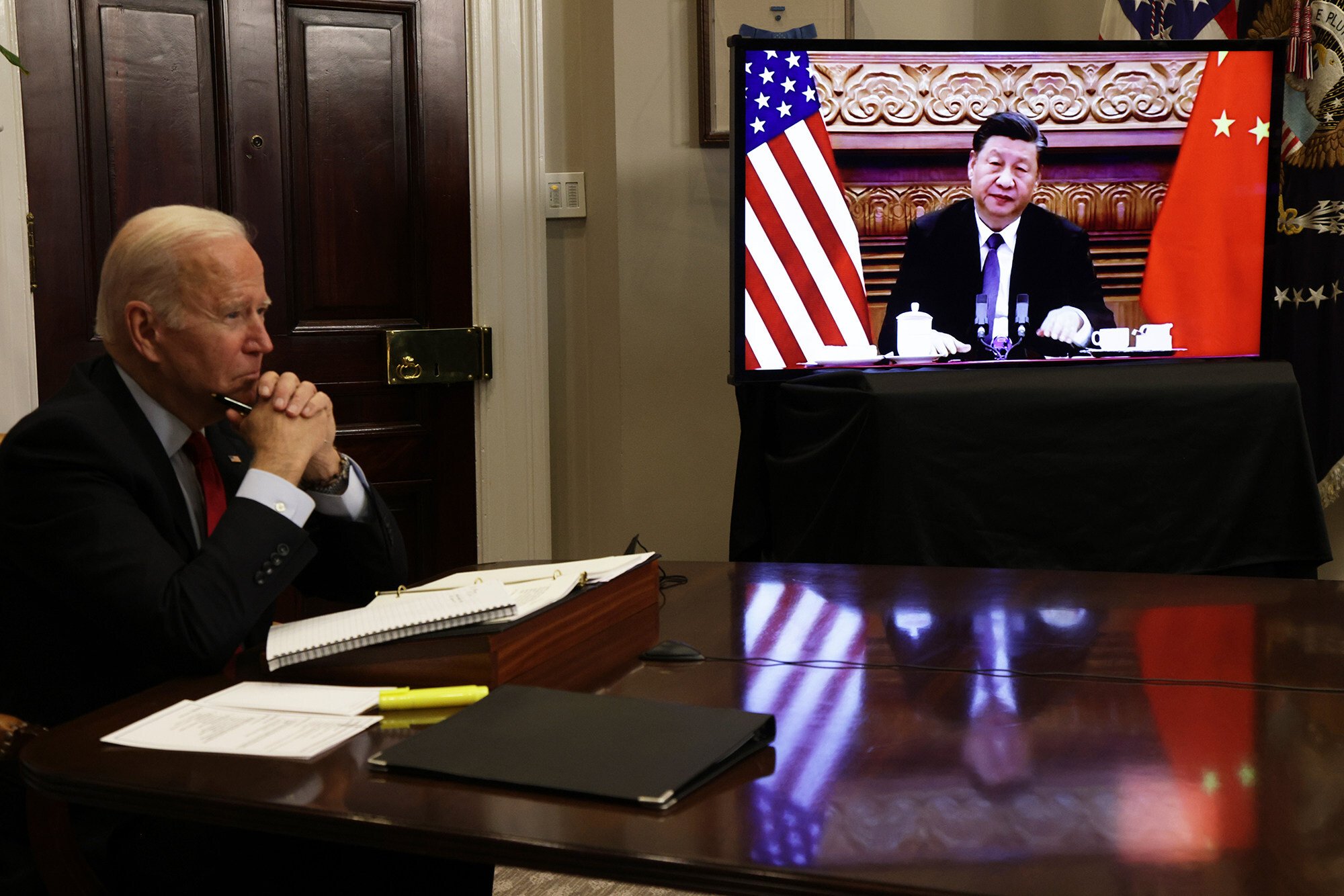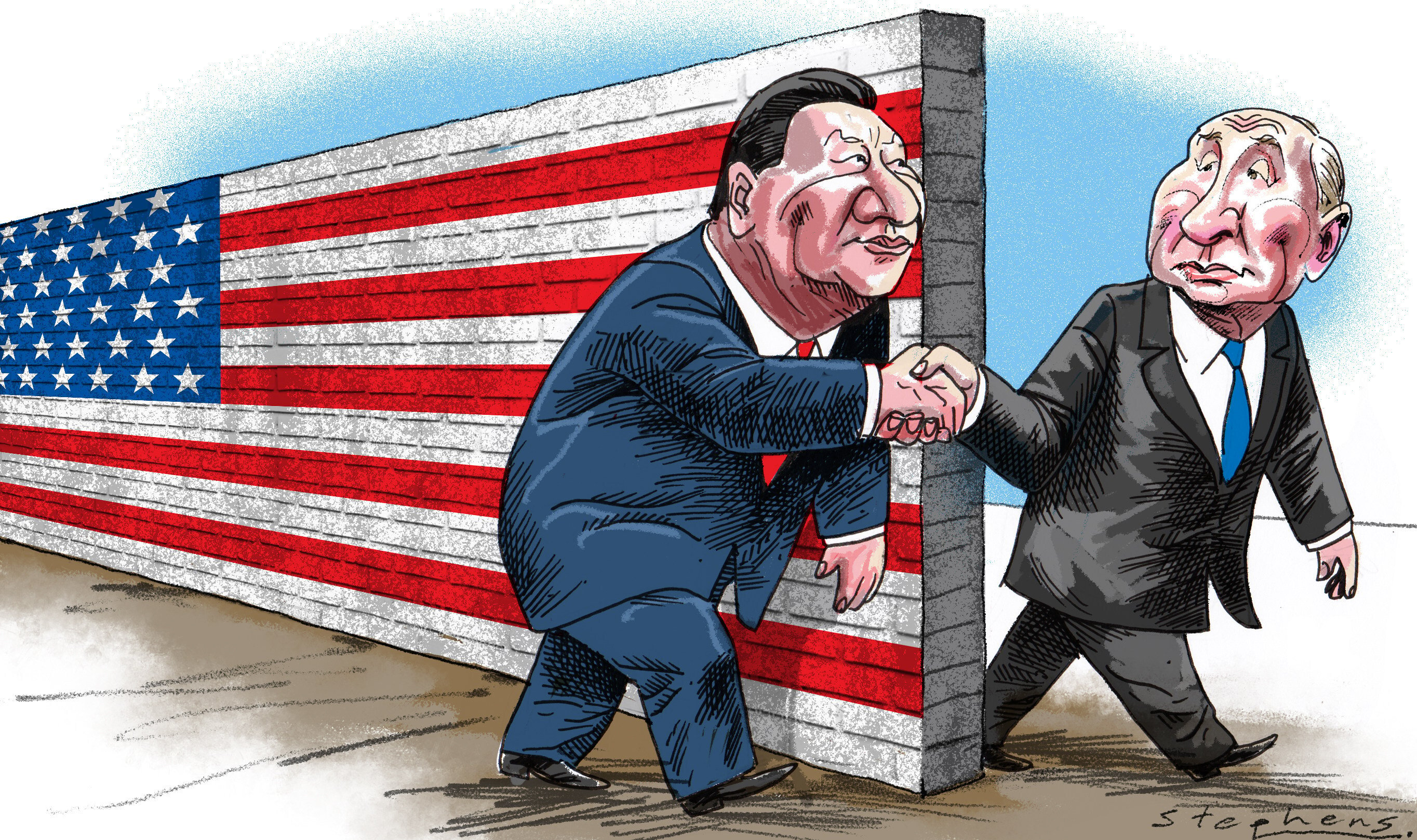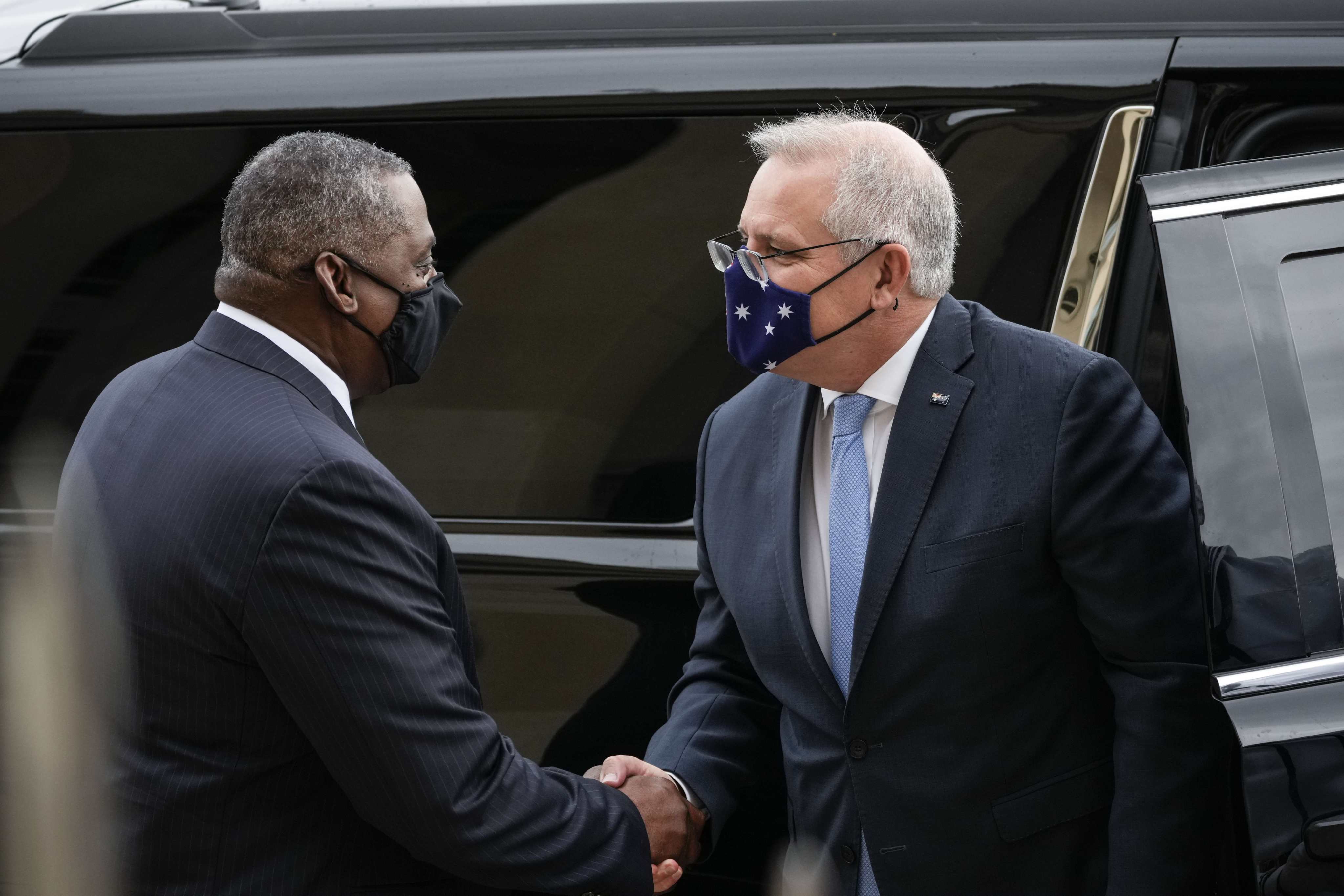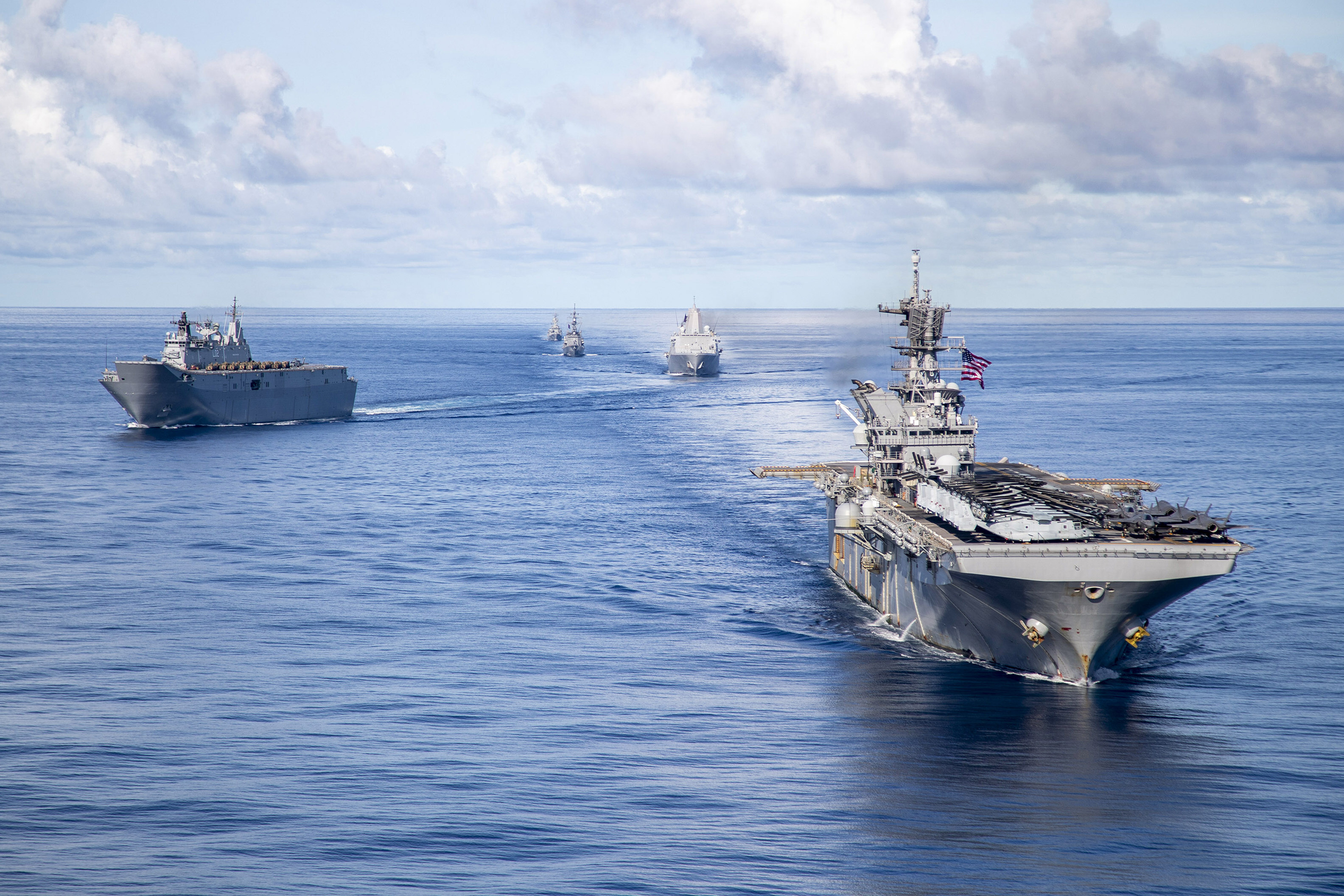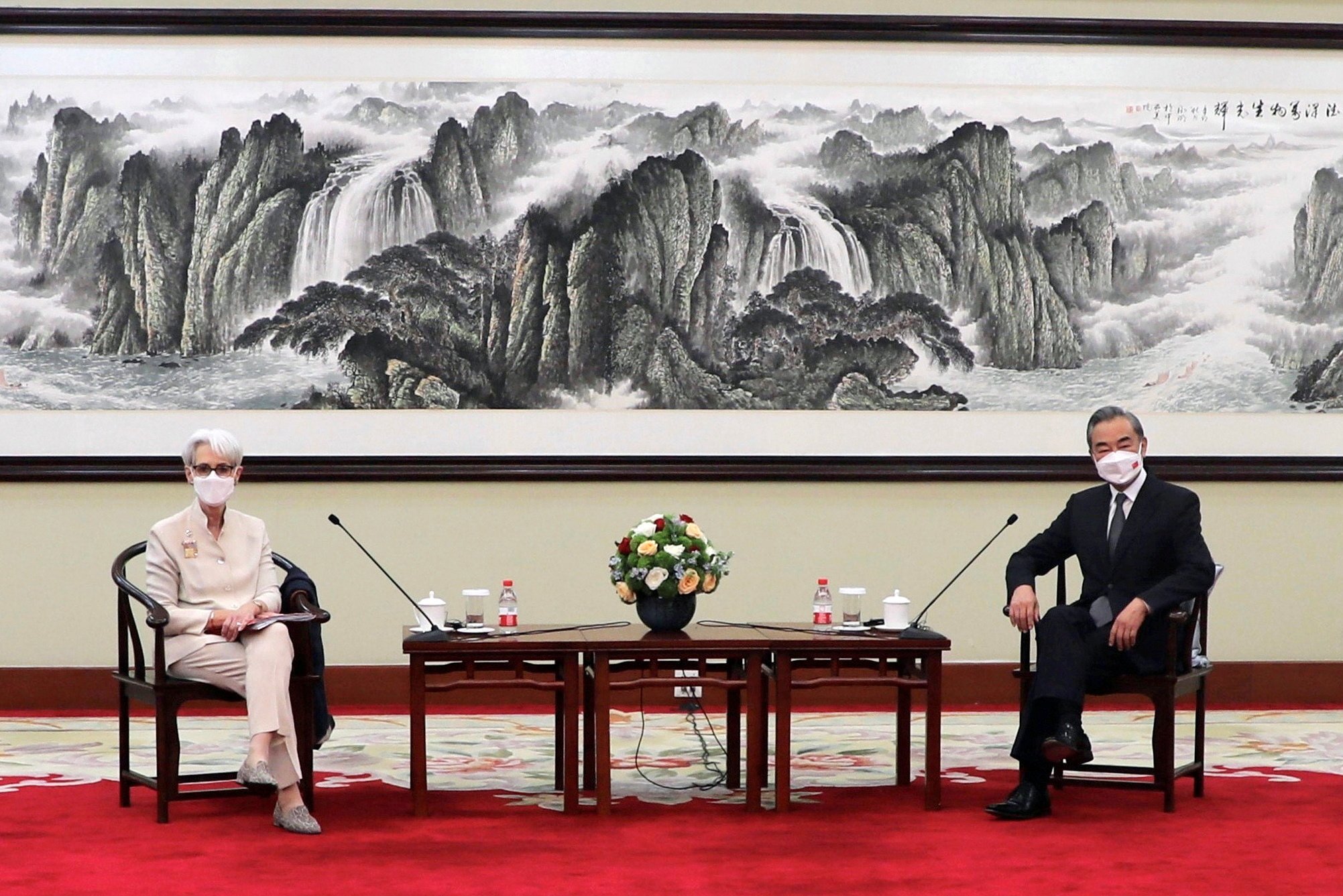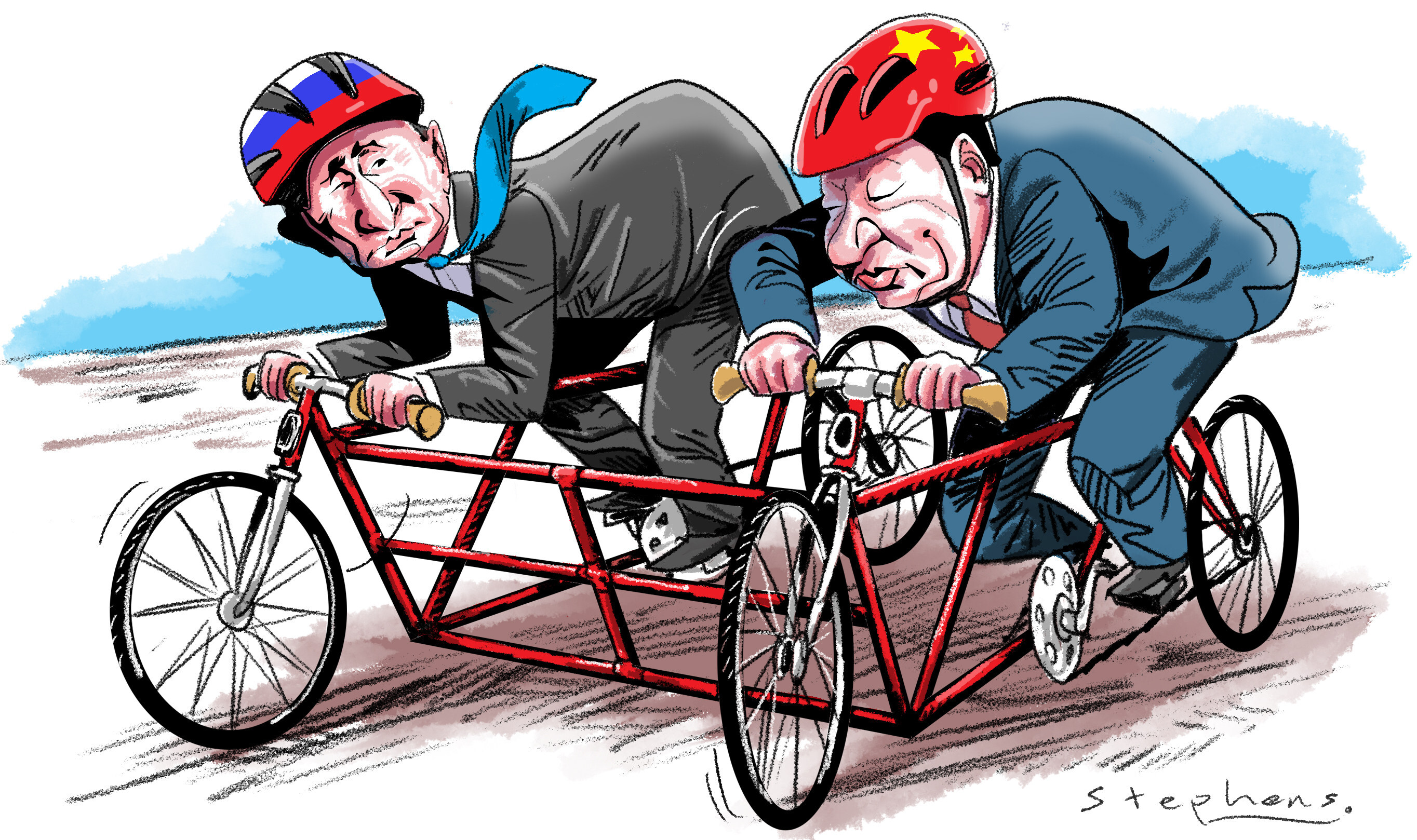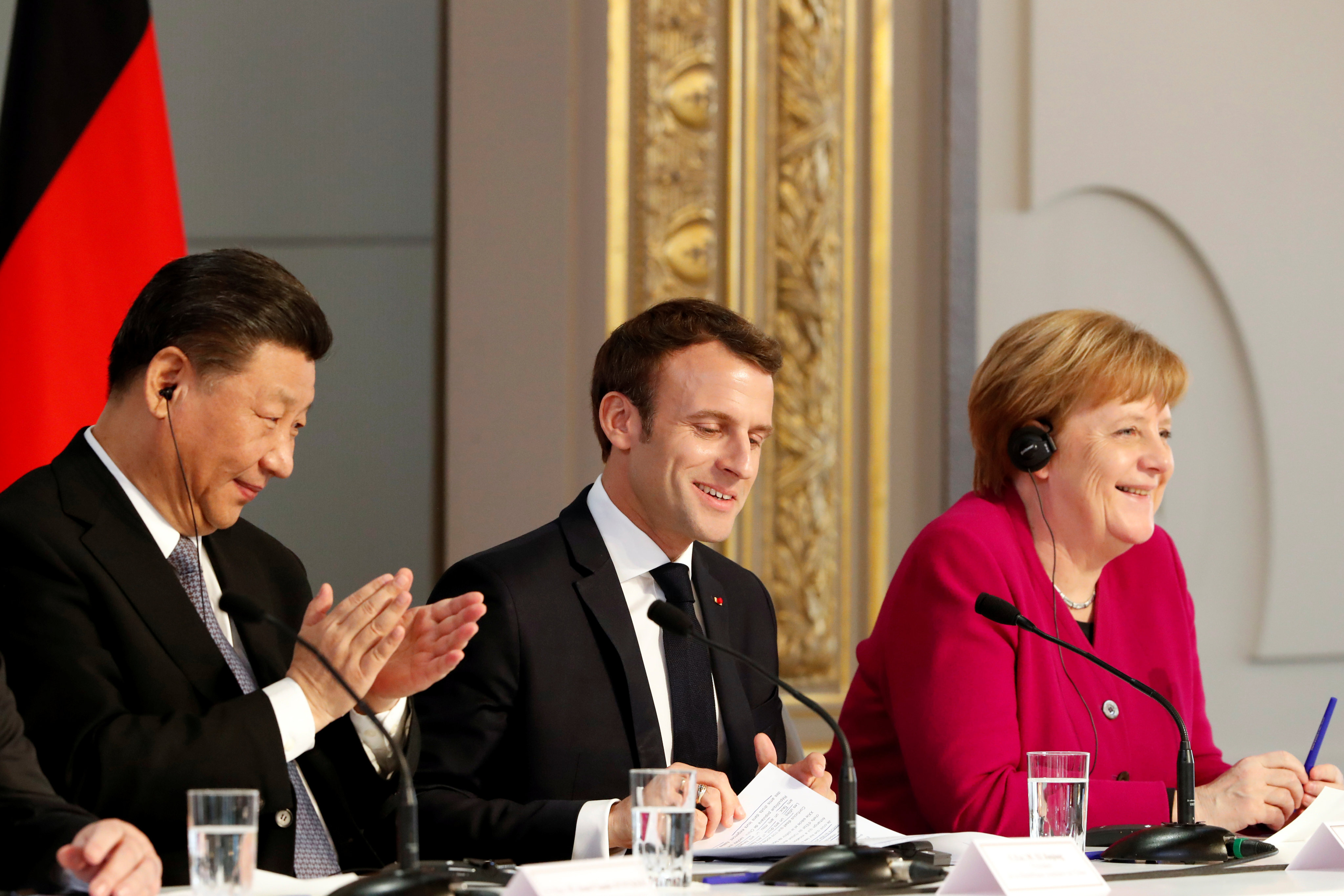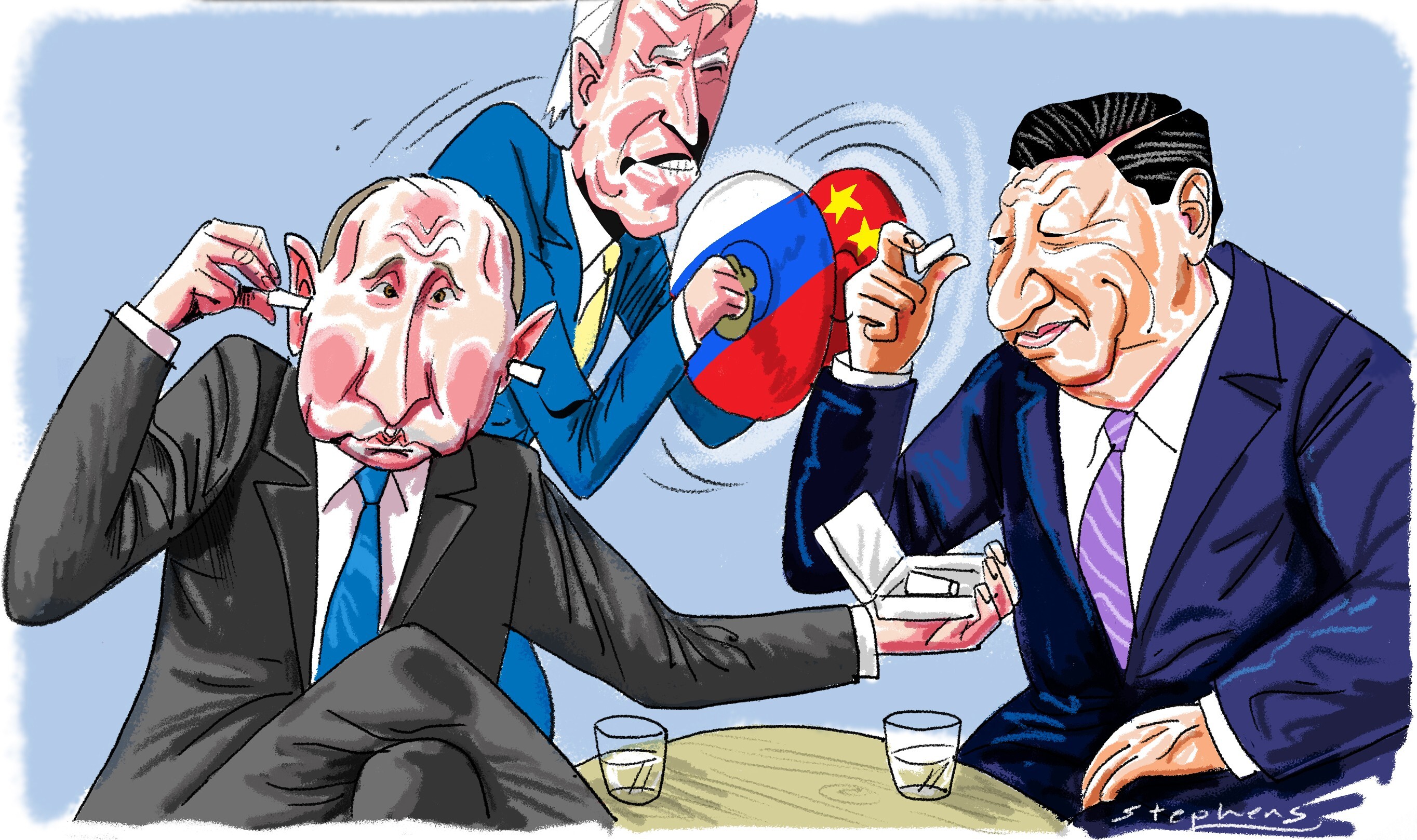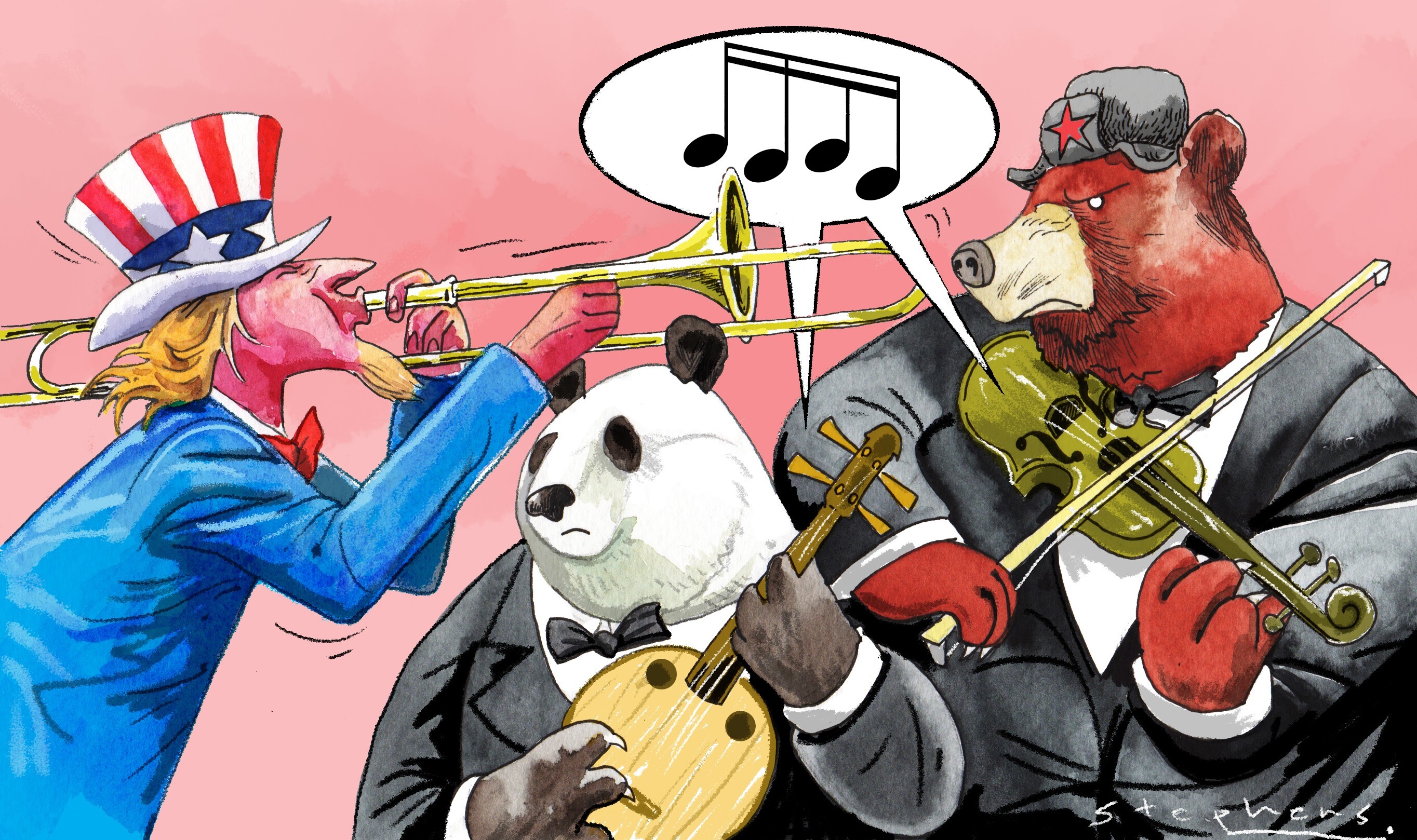
US attempts to isolate Russia and contain China have not only pushed the two together, but prompted them to seek new partners outside US influence. Trade and investment deals in the Middle East and Africa could see these regions become increasingly key players on the world stage.
At the Asean, G20 and Apec summits, the tone of world leaders’ discussions suggests global powers’ rivalry is a long way from abating. Notably, China’s Xi struck a milder tone, in the face of Western attempts to drag Russia into the spotlight and during meetings with other leaders.
As Putin and Xi reiterate their shared opposition to a US-led global order, Moscow is identifying other potential partners, including India and Saudi Arabia.
The tenuous post-Cold War order appears to have fully given way to a new era, with Ukraine becoming an outlet for the accumulated acrimony between the rival great powers. Neither Ukraine nor Russia appear likely to back down, and none of their backers show signs of ending their support.
Not only is trade expanding between the two economies, they are moving to reduce US dollar exposure, as Russia continues to combat Western sanctions. The recent Vostok 2022 drills and the remarks of Beijing’s No 3 official on his visit to Russia are also signs of closer ties.
In a bid to oppose Washington’s diplomatic and military advances in the Indo-Pacific, Moscow and Beijing are seeking stronger ties with New Delhi. While India has retained its neutrality over Ukraine and its relations with China remain tense, all sides know it is the cornerstone of the region’s security structure.
Russia and China have been politically alienated by the West and are united in opposition to any Western activities in their home regions. The current Taiwan Strait crisis is just another piece of a larger puzzle as the reorganisation of the international order continues.
With the crisis in Ukraine threatening to unravel the international order, major powers are rushing to solidify global partnerships. Washington, Beijing and Moscow have boosted engagement in the Indo-Pacific, Middle East and Africa, raising fears of confrontation in these regions.
In the new era of global politics in which national interest eclipses all else, countries will inevitably provoke one another, giving rise to coalitions and a new global balance of power. Such an environment is hardly conducive to international cooperation and historically has led to full-scale conflict.
While Washington’s foreign policy is now equally focused on two fronts – Europe and the Indo-Pacific – it is also seeking to shore up partnerships around the world. With Russia, China and other major powers doing the same, more geographic, political and economic instability can be expected.
Global powers are increasingly seeing the Indo-Pacific as a prime spot to diversify their foreign policy. Interest from the US and its allies as well as Russia and China shows the emerging global order is likely to have the Indo-Pacific as a top priority.
The US is increasingly focused on economic strategy as a way to contain Russia and China, deploying or threatening sanctions and insisting its allies do the same. Great power politics is taking the place of economics, which has long been the driving force behind globalisation and liberalism.
The reluctance of many countries, including heavyweights like India, to support US sanctions on Russia points to a new, more fragmented world order in which states eschew the geopolitical aims of major global powers to pursue their own economic needs.
India has been slow to join the US and other democracies in denouncing and sanctioning Russia over its actions against Ukraine. Delhi must act wisely as it relies heavily on Moscow not only for its arms purchases but also for fertilisers that keep its agriculture sector growing.
To stop Nato’s eastward expansion, Putin has been prepared to risk international condemnation and possible domestic repercussions. His rationale of the need to protect the country’s security also has the support of a sizeable number of the Russian people.
In a joint statement released after their recent summit, Xi and Putin outlined new energy and space deals and promised mutual support over regional disputes. In particular, they were united in their criticism of the US and its allies, revealing coordinated security interests in Europe and the Asia-Pacific.
Talks between Russia, the US and Nato sound like a broken record as all sides refuse to give ground and risk looking weak. With tensions likely to remain high even if the Ukraine crisis abates, Moscow is busy bolstering ties with China, Iran and other allies.
The deployment of a Russian-led peacekeeping force to Kazakhstan is an important milestone in the development of security architecture in the post-Soviet era. Washington is witnessing Moscow’s growing potential to ensure the vitality of Russian-allied regimes.
2021 saw the two countries draw closer together than ever in recent years, with bilateral trade surpassing pre-pandemic levels and cooperation on the energy front. Most outstanding, however, was military collaboration, which could deepen next year.
Russia and China have intensified their collaboration, ranging from deepening military, political and economic ties to hitting new levels of cooperation on energy and space research, amid increasing rhetoric from the US, Nato, the G7, the EU and others.
Even though both sides say there are no plans for a formal military alliance, Russia and China have reached historic levels of military cooperation this year. Beyond this, Moscow and Beijing are embracing collaboration in the political, technological and economic realms.
The US has made several moves towards normalising relations with China and Russia recently. Such efforts are doomed, though, as mutual suspicion leads to viewing each other’s actions as aimed at causing maximum damage to their opponent.
Amid Joe Biden’s new “pivot to Asia”, the US is even dragging its ally, Canada, into the Taiwan issue. In response, whether in Central Asia, Asean or Europe, China is out to show it is not alone against the US-led alliance.
Washington has prioritised the Anglosphere and ignored the efforts of its European allies, creating rifts in its alliance network. China and Russia have responded by intensifying their collaboration and bringing Iran into the Shanghai Cooperation Organisation.
After decades of fighting in the Middle East and Afghanistan, America is focusing on winning over Asia. Its rivalry with China is taking shape with the military ceding more space to diplomacy – for now.
Biden’s ‘pivot’ appears less conciliatory towards China, instead focusing on reducing tensions with Russia. China seems to be raising the ante, maintaining close diplomatic and military ties with Russia while ramping up defence spending in preparation for potential conflict.
Official statements from both countries may place the bilateral relationship on a pedestal, but China’s growing friendship with Ukraine and its footprint in the Middle East are all potential areas of tension.
The summit between the leaders of China, France and Germany seems to have been amicable, but China-EU relations are not in the clear given that Merkel is stepping down and Macron’s stance has proved variable.
With Biden proclaiming ‘America is back’ and seeking to rally democracies to ‘tackle the greatest challenges’, it’s no wonder Beijing and Moscow are strengthening ties and seeking to safeguard core interests.
While the meeting between American secretary of state and his Russian counterpart was less acrimonious than the US-China Alaska summit, cooperation between Moscow and Beijing is both consistent and strategic. Western antagonism will only strengthen this.

